Guest writer: Anna Nilsson Spets
The idea wasn't Djibouti at all, it was Eritrea, but after far too much trouble with a covid-closed country and difficulties in obtaining sensible information, I gave up, booked a trip to the Seychelles, but didn't see myself fitting in there between smirking honeymooners.
Map googling and the choice fell on Djibouti, the small desert country sandwiched between Somalia, Ethiopia and Eritrea. Not a single person I know knew where it was and I was made a fool of for travelling there alone. It is one of the least visited countries in the world.
Djibouti is a former French colony, now an independent republic, though not without problems in terms of politics, infrastructure and refugee flows. Landed after flight Brussels-Addis Ababa-Djibouti (the capital is named the same as the country), the dry heat hit me like a punch in the face. Met by my local tour guide for the next five days; Moussa, who turned out to be a great guy and took care of me like I was his mum type. Checked into the City hotel in the quiet Heron area, 50 dollars a night.
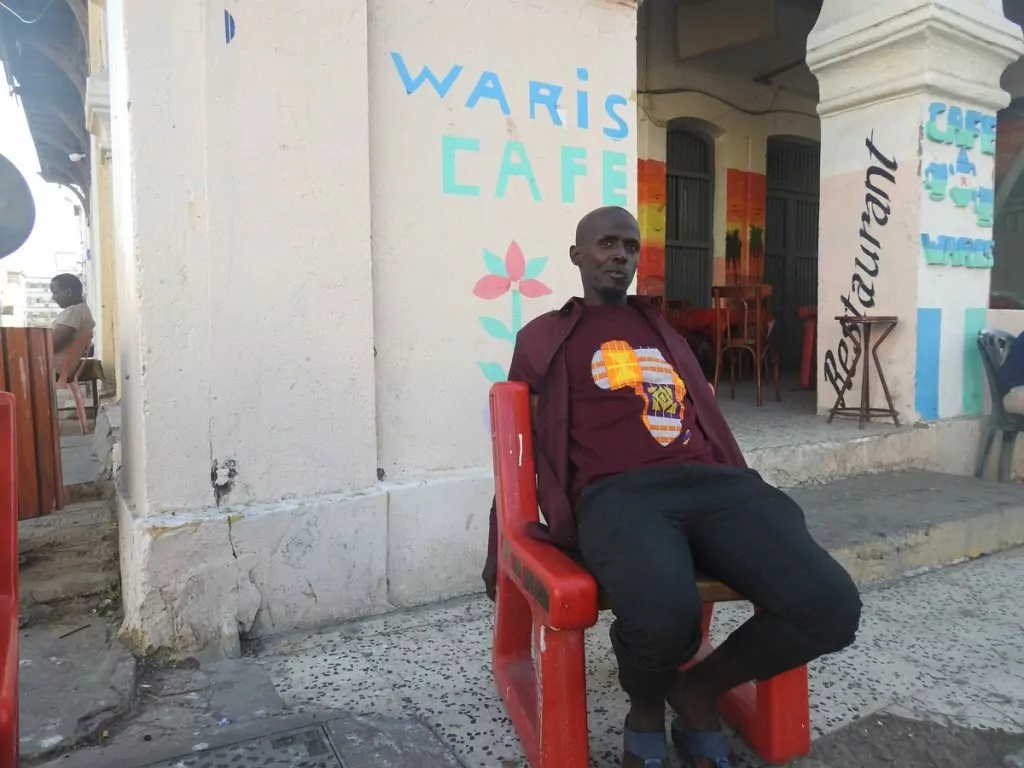
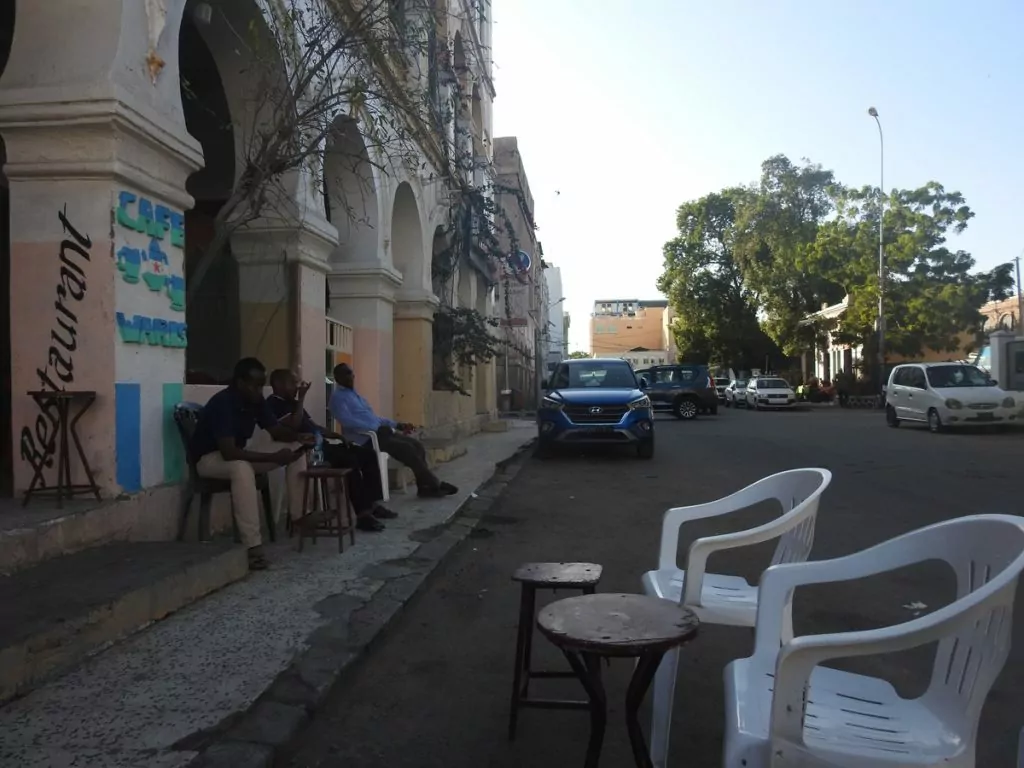
The next morning I am picked up by Moussa and an equally cheerful driver. We pass mega-sized harbour docks, all foreign-owned. The tarmac road is initially quite good, and I get acquainted with the blue roses of Djibouti. The blue roses are all those thousands of thin blue plastic bags stuck in bushes and trees. Along the road, lorries are lined up, rubbish heaps are smouldering and the locals have started the day's street trading.
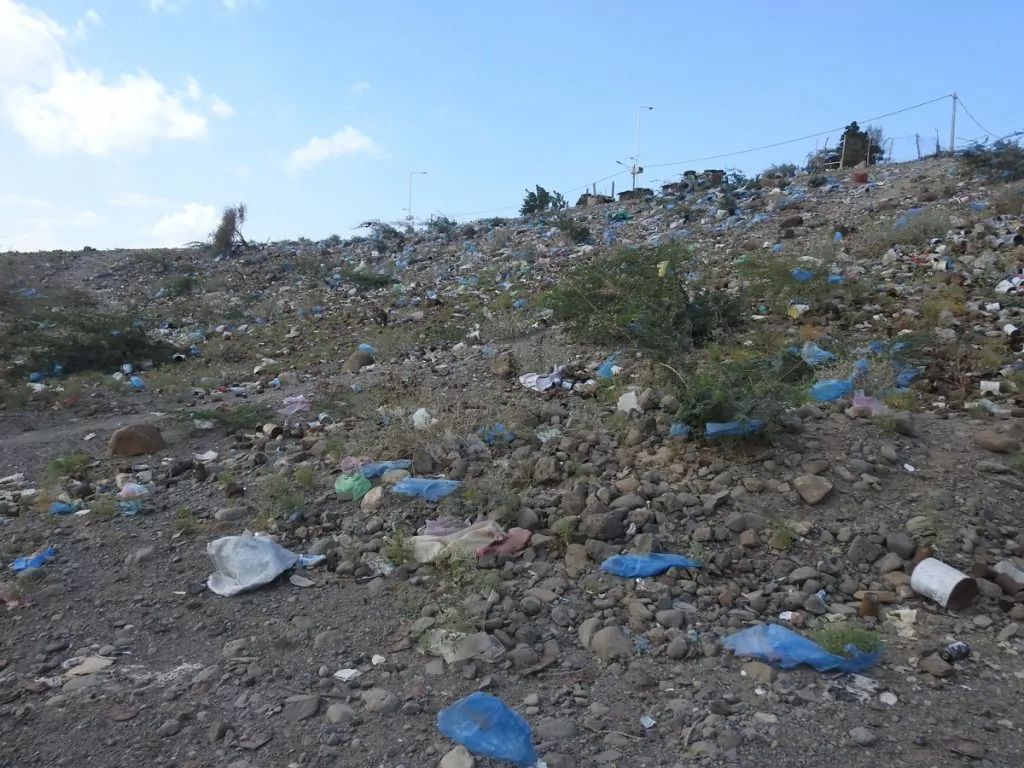
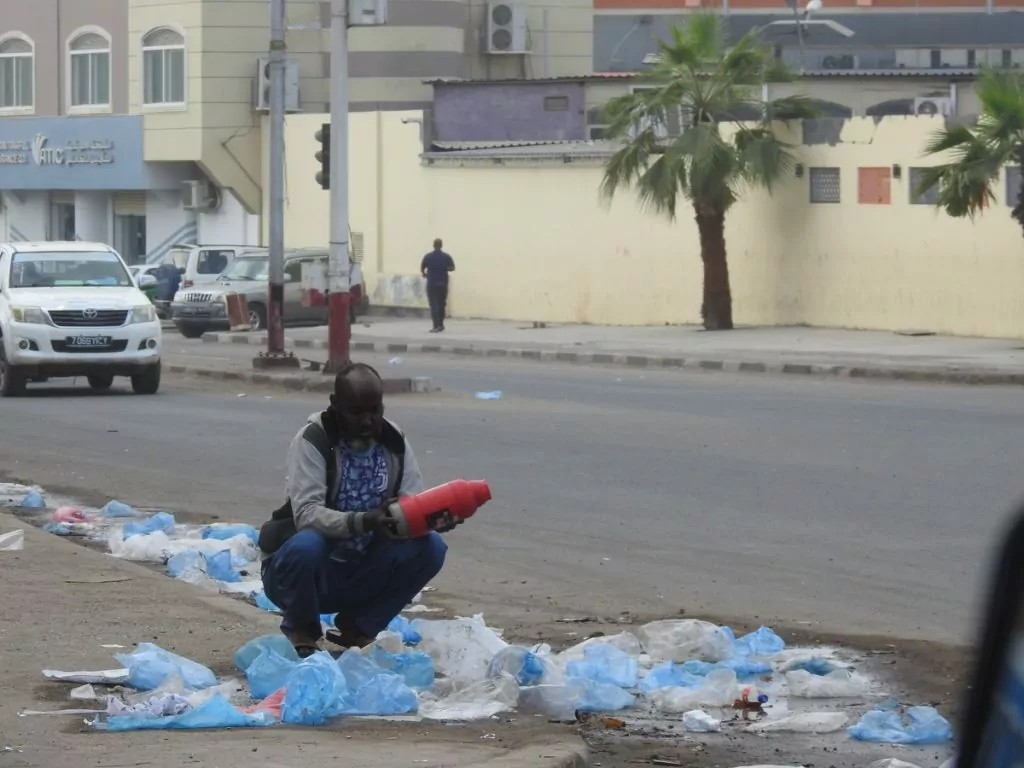
Large foreign military camps are scattered in the semi-desert between the mountains, otherwise there is not much in the way of buildings. The tarmac turns to stone and sand.
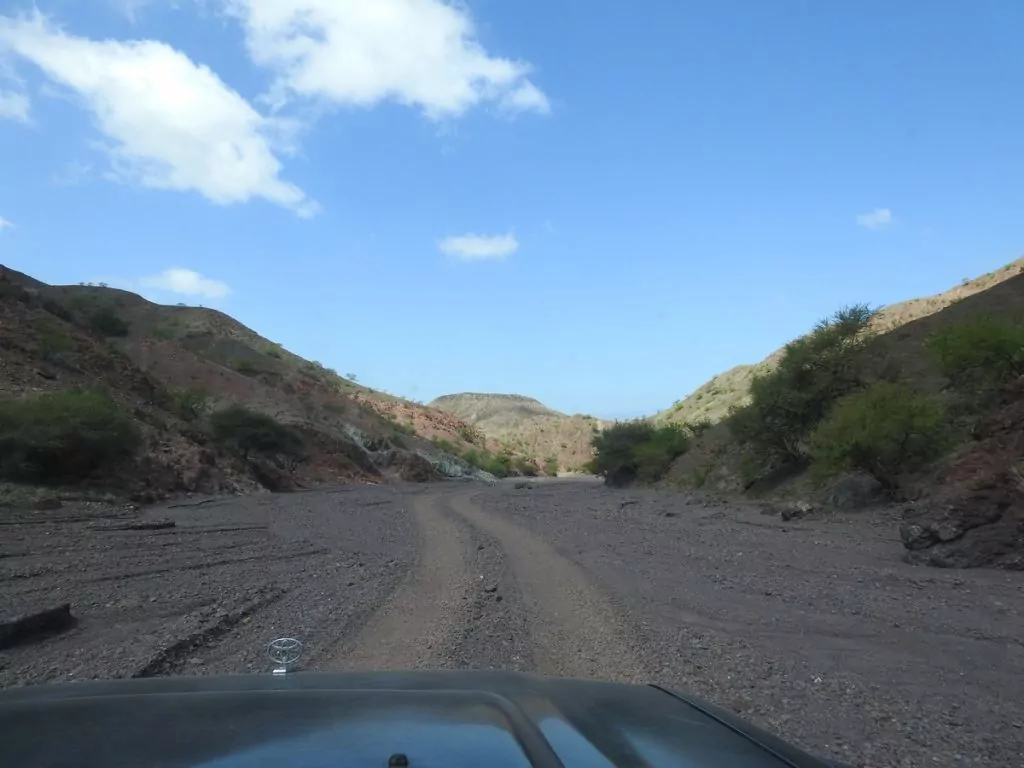
Arta beach is a godforsaken hole with a couple of stone houses and a corrugated iron toilet where I squeeze in to change into a swimsuit, trying not to step in the too dirty pee and poo hole.
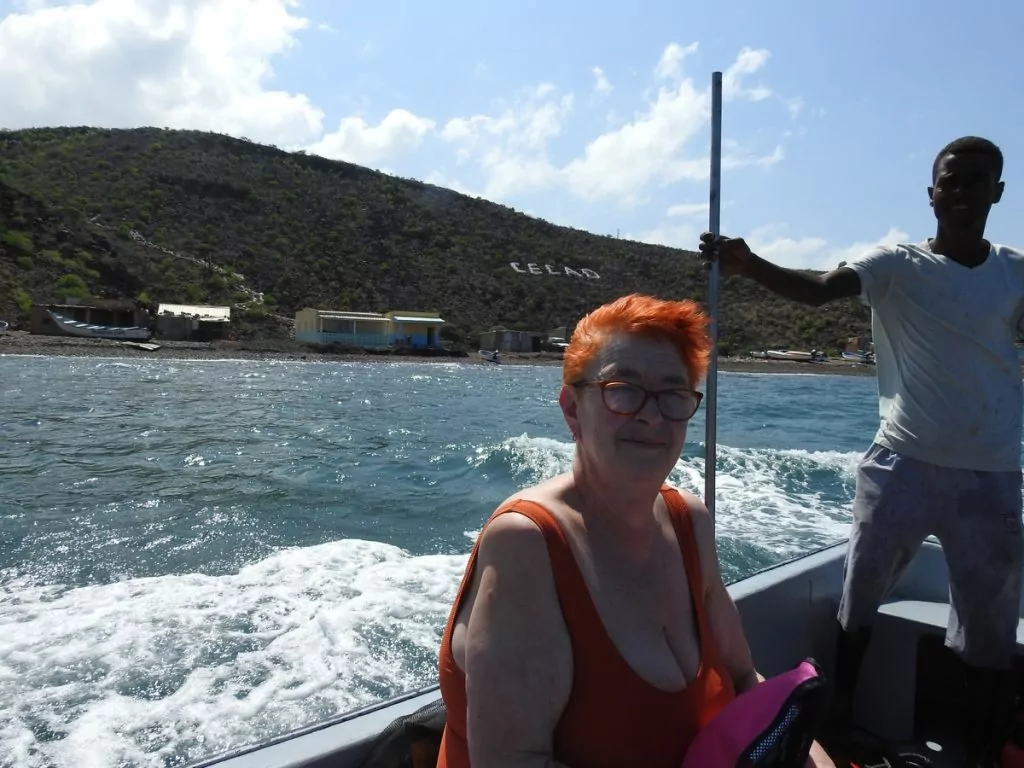
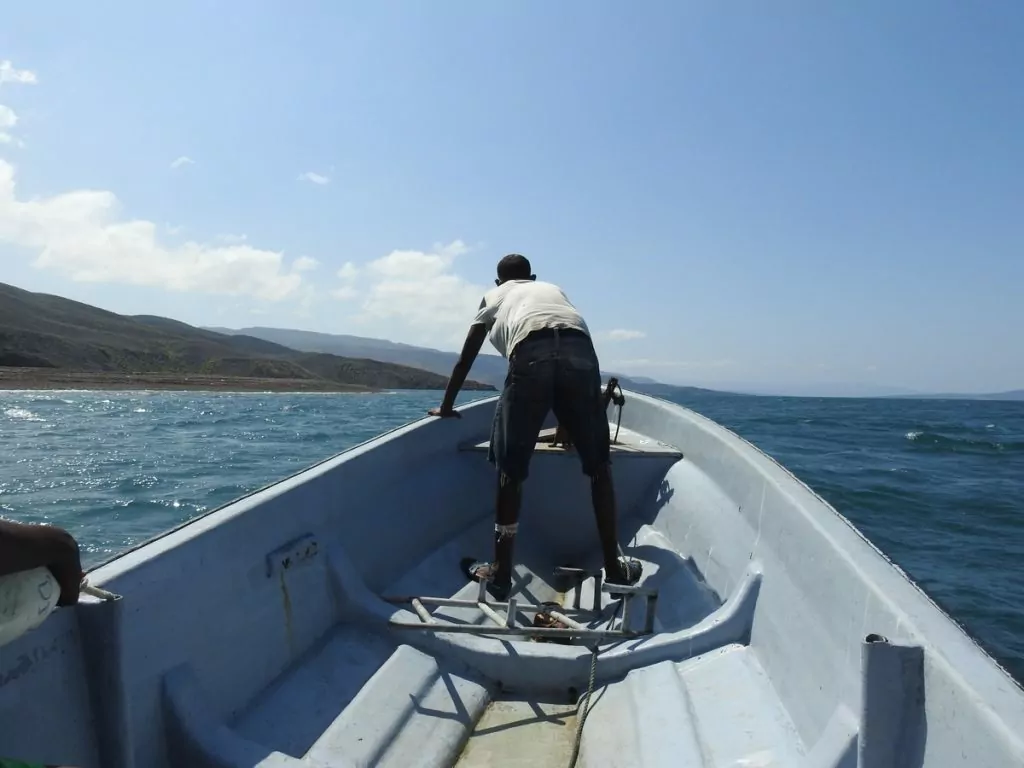
Out on the blue wave, we're looking for a WHALE! The small outboard motor putters along gently and after an hour or so we see a ripple and a shadow. Here the whale shark snorkelling is done in an ethical way, no chasing after the animals and distance is kept.
Mask and fins on, I plunge into the sea like the worst walrus, see the whale shark from a distance and snorkel towards it. It's a solitary animal, about 7 metres long. It takes no notice of us whatsoever, its dorsal fin touches my stomach and I almost forget to breathe, so COOL. A bunch of colourful fish follow the whale shark. We later see two more whale sharks but leave them alone.
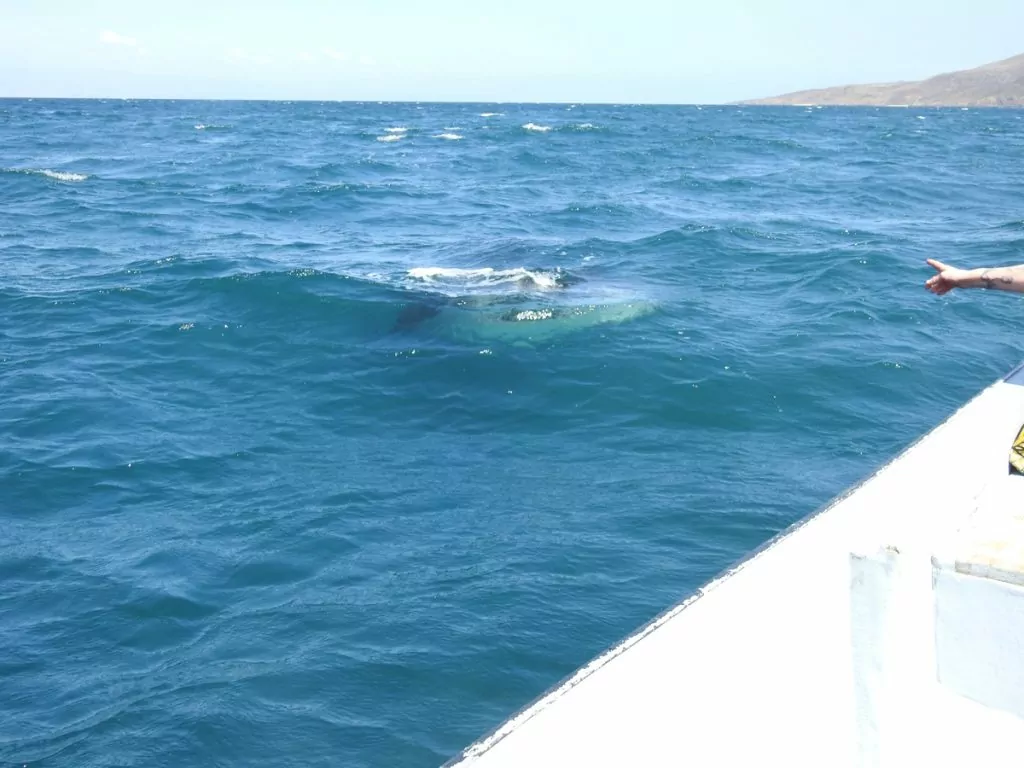
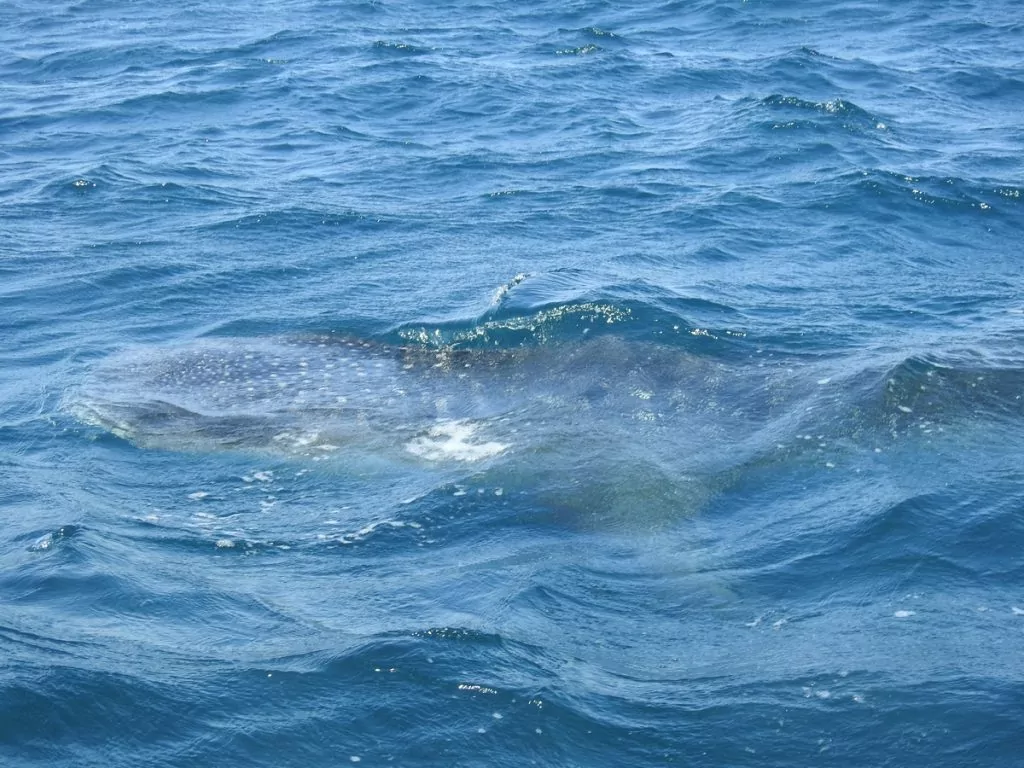
The whale shark is the largest shark species of all, growing up to 12 metres, feeding on plankton, smaller fish and fish eggs, this friendly animal is nothing to be afraid of.
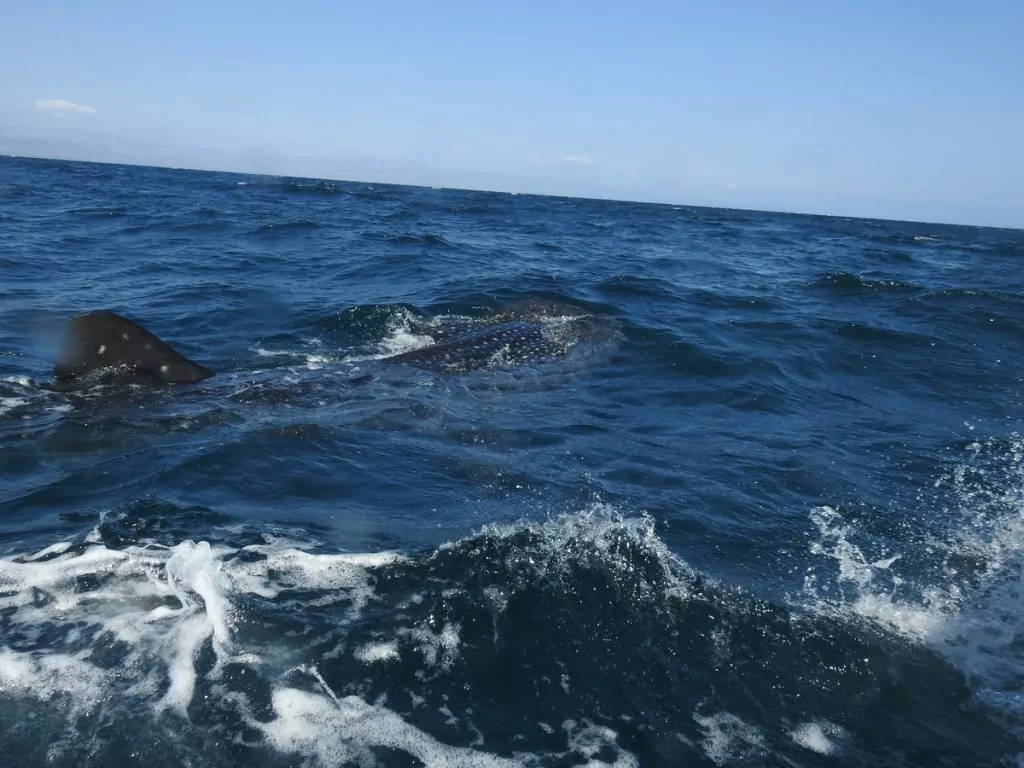
For my evening meal, I have asked for fish. Moussa, me and two Frenchmen go to the heart of the city, the fish restaurant has a big freezer with the lid open and half-thawed fish with dumb white eyes. We give up and choose another restaurant.
Day 2 starts with the minaret call, my neighbour who lives in a shed in the backyard unfolds his prayer mat and turns towards Mecca. The melody loops out over the city and a new day has begun.
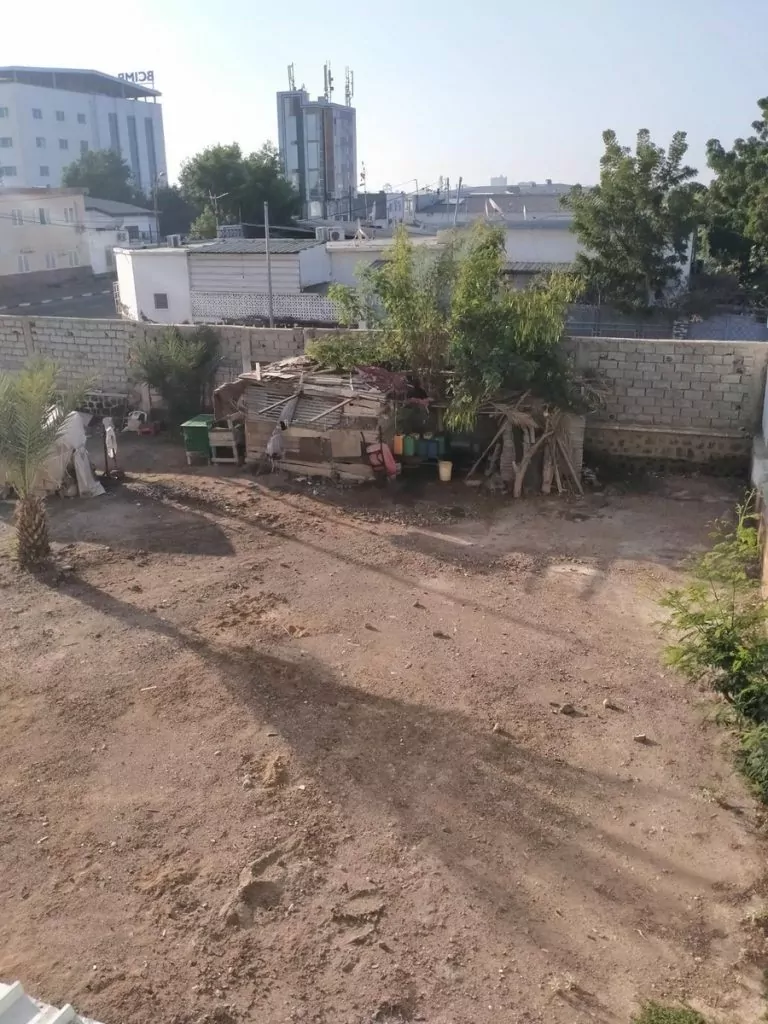
I pack my swimming gear and go to Moucha island for a full day of swimming and snorkelling. A large group of dolphins follows the boat. The island is 3 km long and has around 20 residents, the boat trip takes an hour and you are picked up in the afternoon.
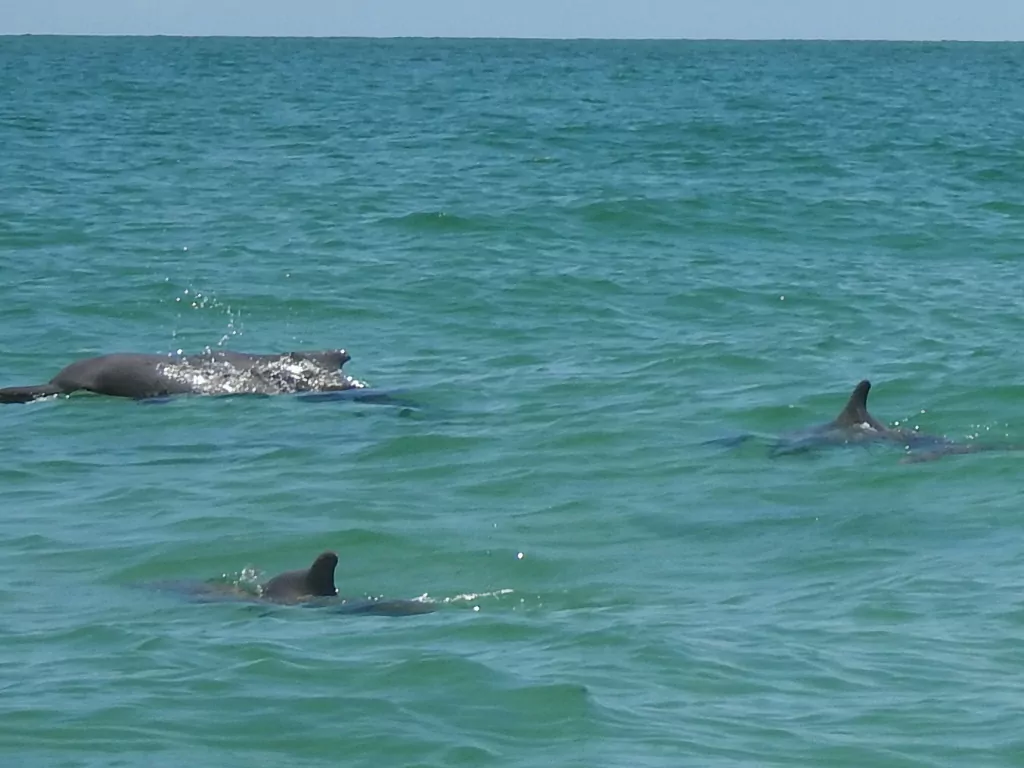
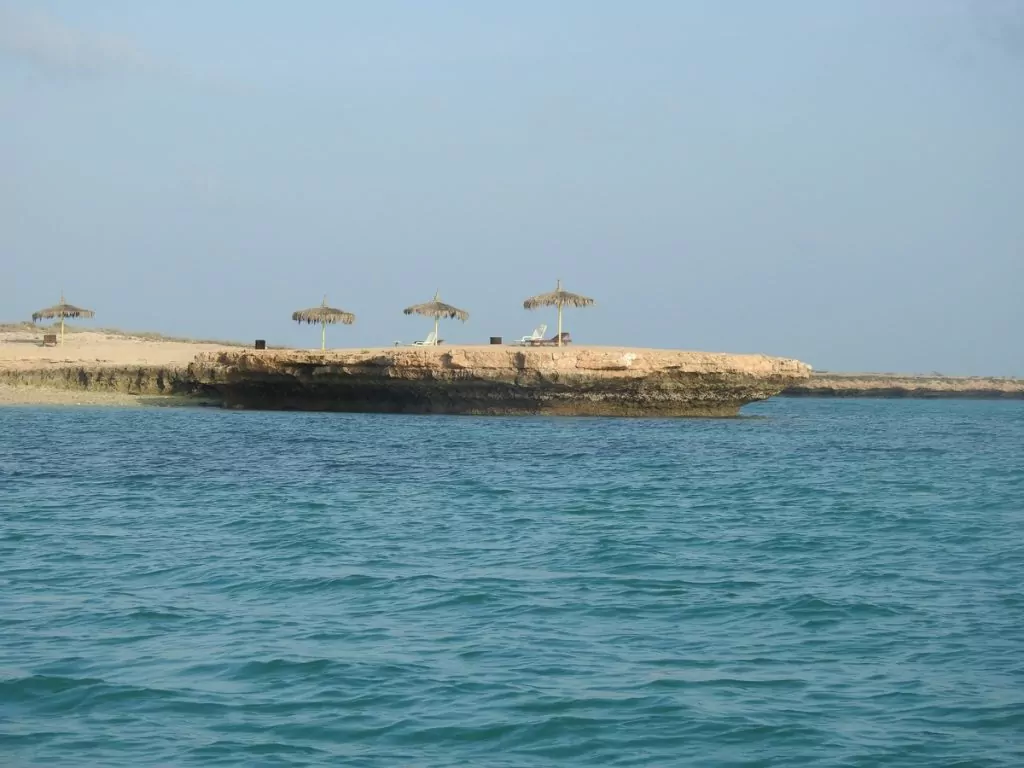
The snorkelling was quite ok, but not the best I have done, mostly small fish. At Moucha, the dish of the day is served, it is the only dish too, meat sauce and spaghetti. Then I take a siesta under the awnings. Accommodation is available in the small stone houses.
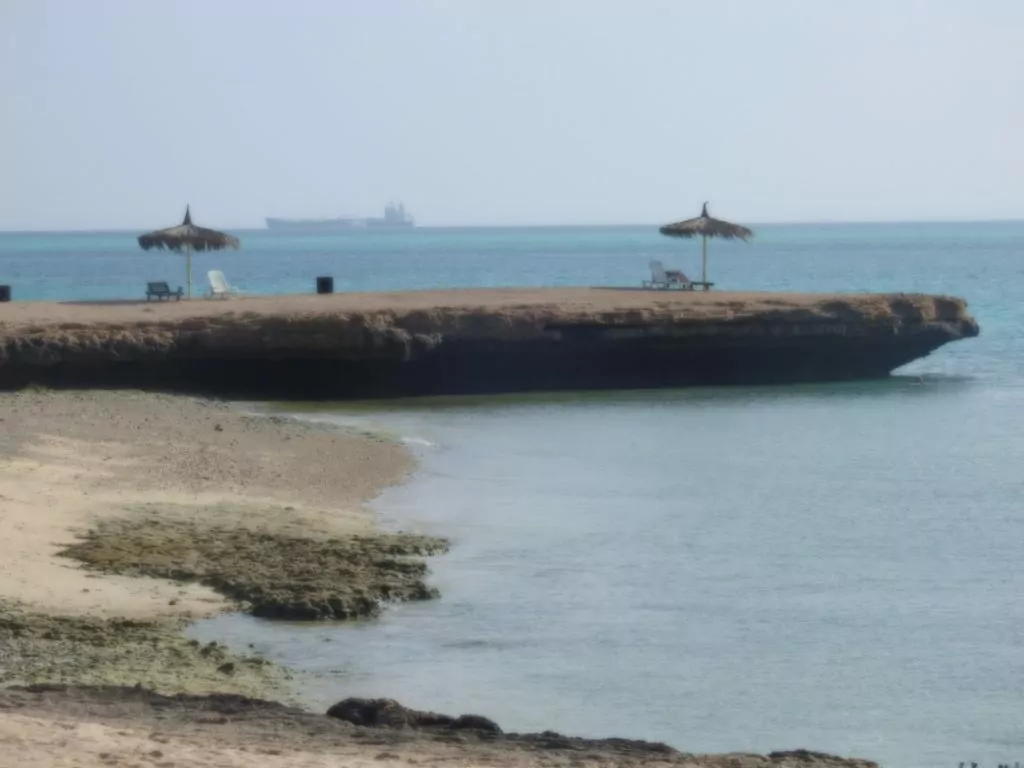
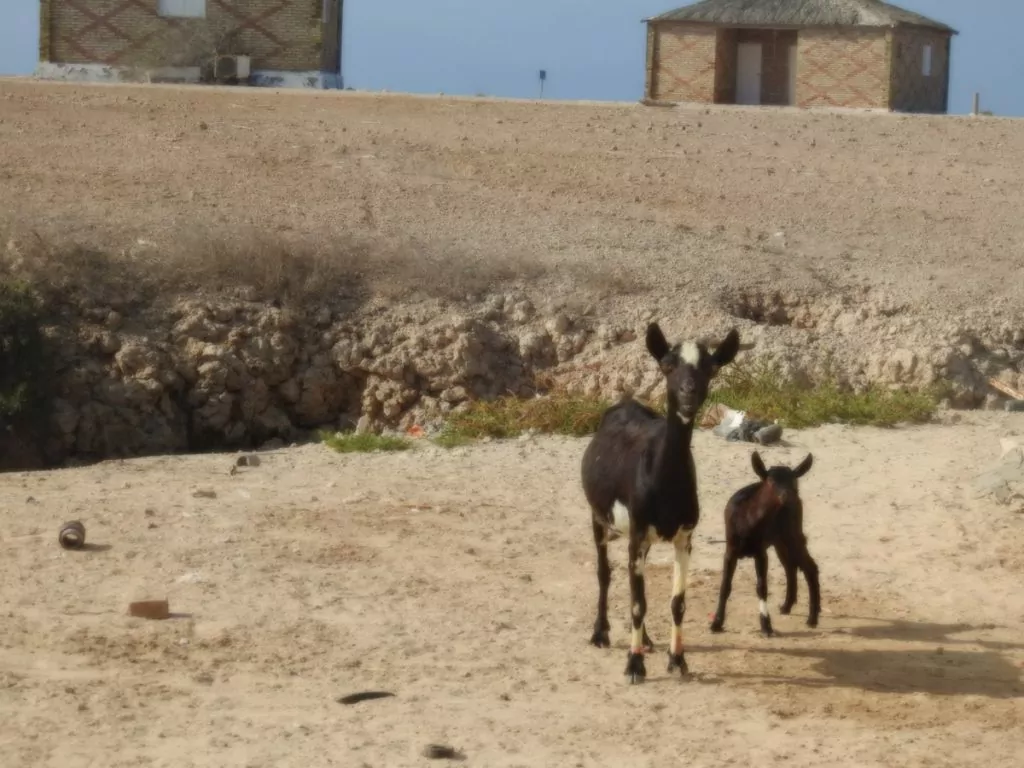
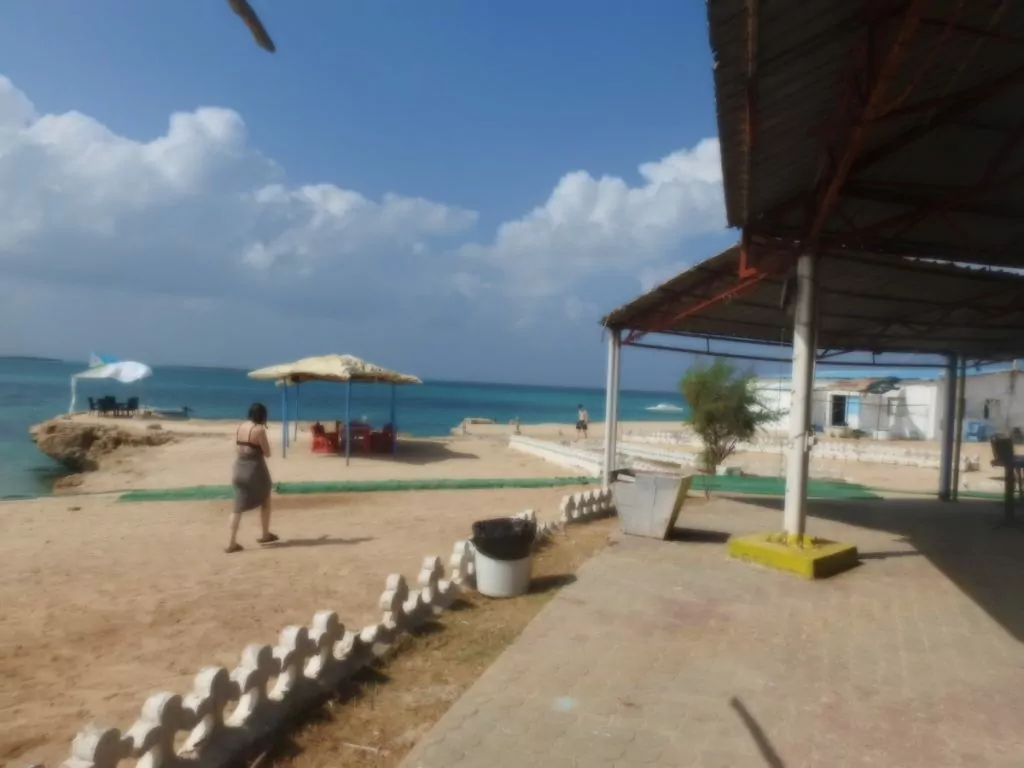
Day 3, out on the roads with the 4W car. I'm glad that I didn't rent my own car for this full day drive, the roads are full of deep holes and sometimes pure sand. GPS does not work but my driver knows exactly where and how. The week before I arrived in Djibouti it had rained heavily and large lakes of brown water had formed, the grass looked a little greener. I'm no geologist, but we're travelling over what was the seabed millions of years ago.
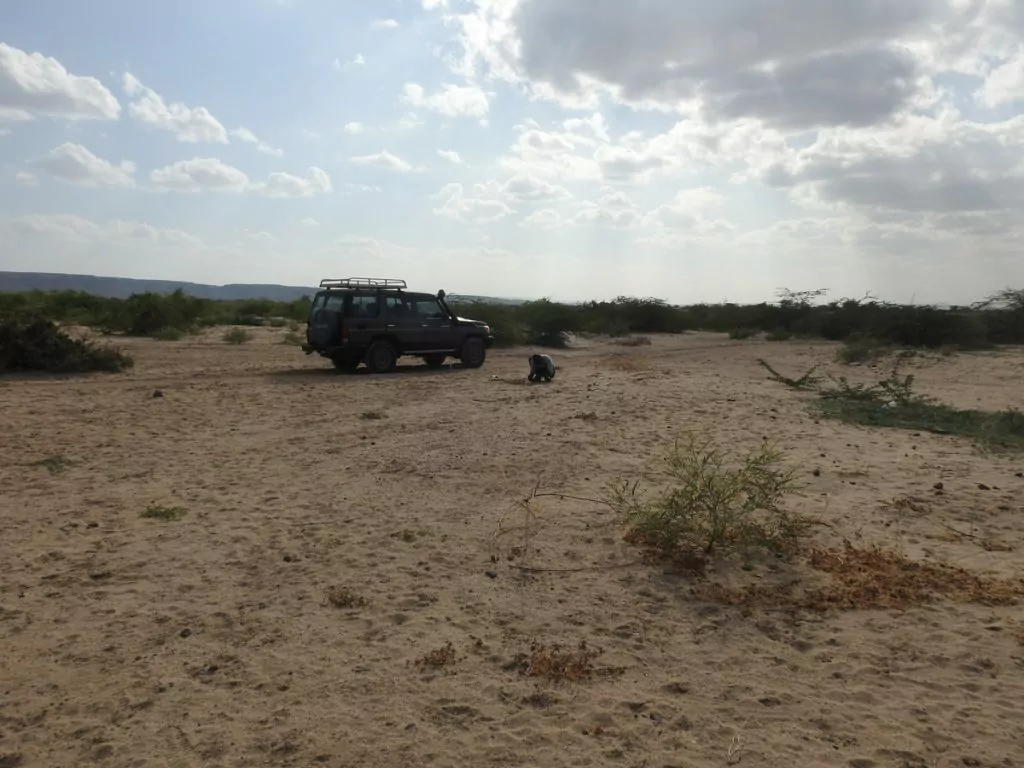
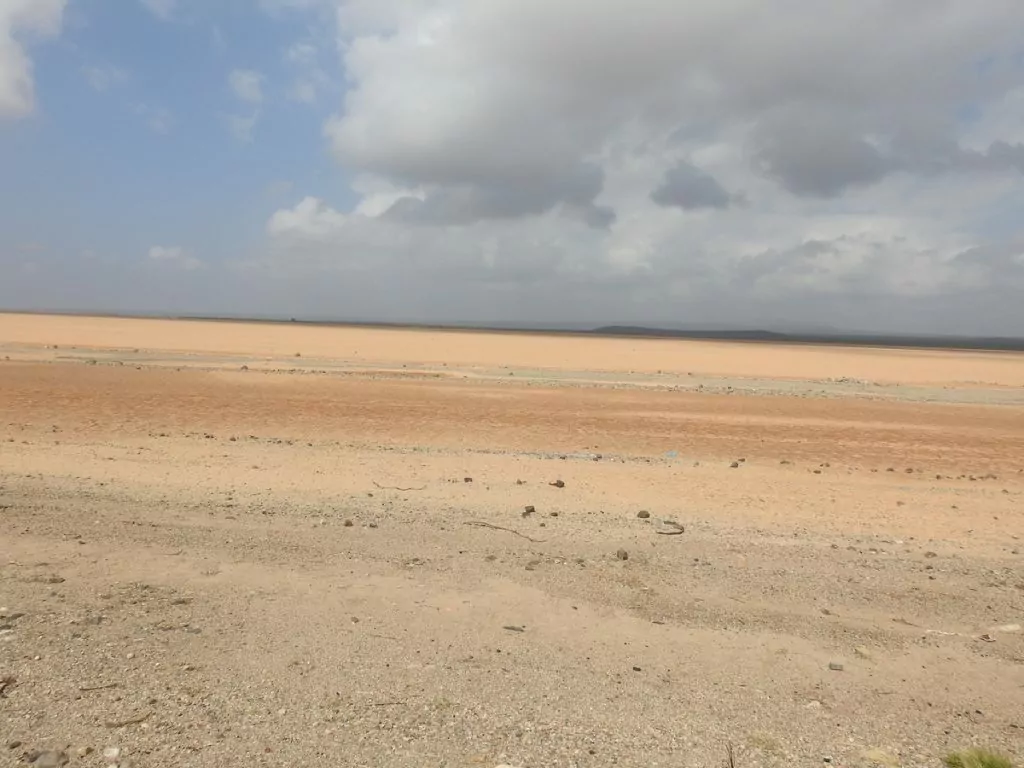
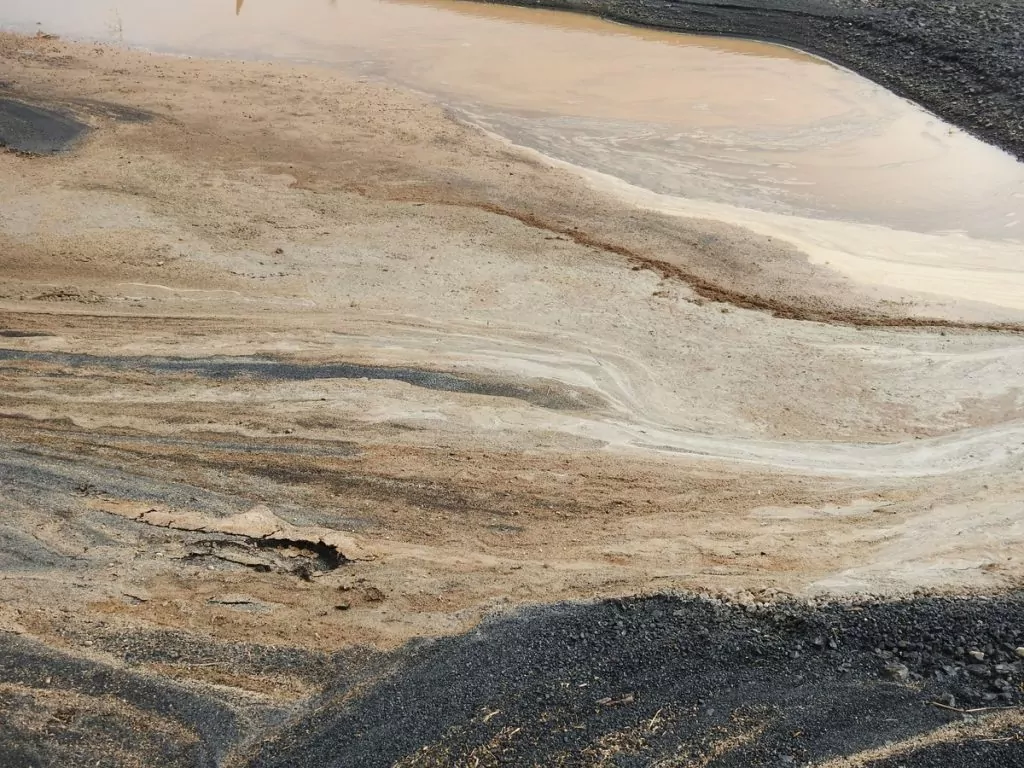
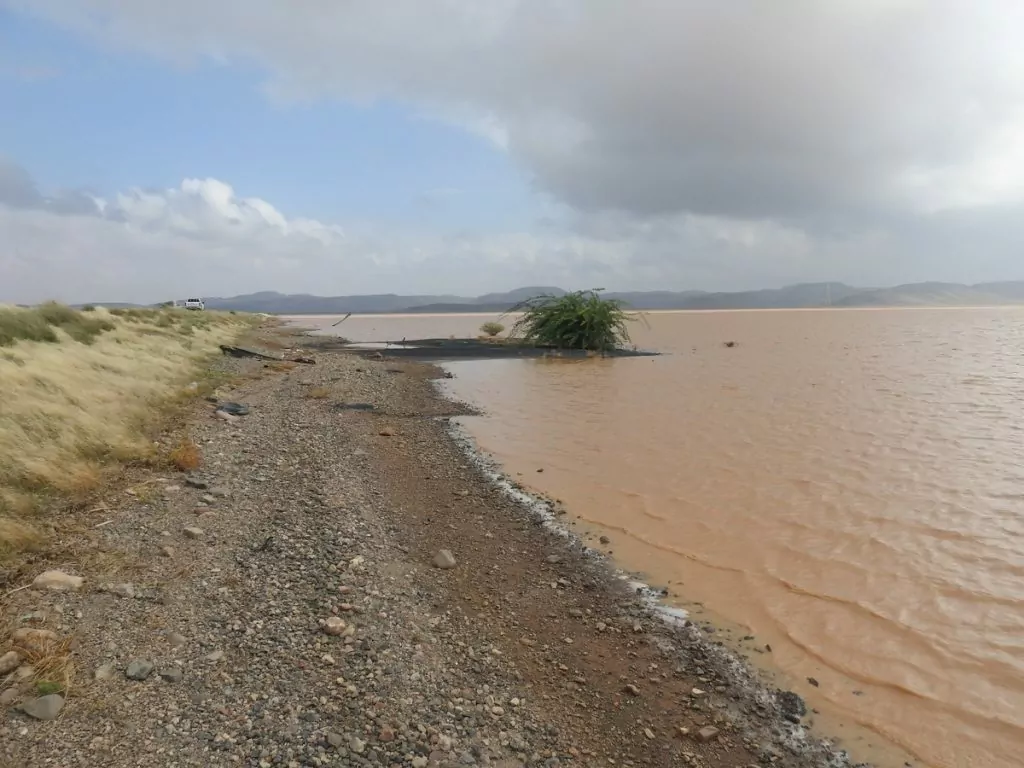
Camels are used for transport and for their milk, you don't ride the animal. And no, this ship of the desert is not exhausted by thirst, he is arrowy!
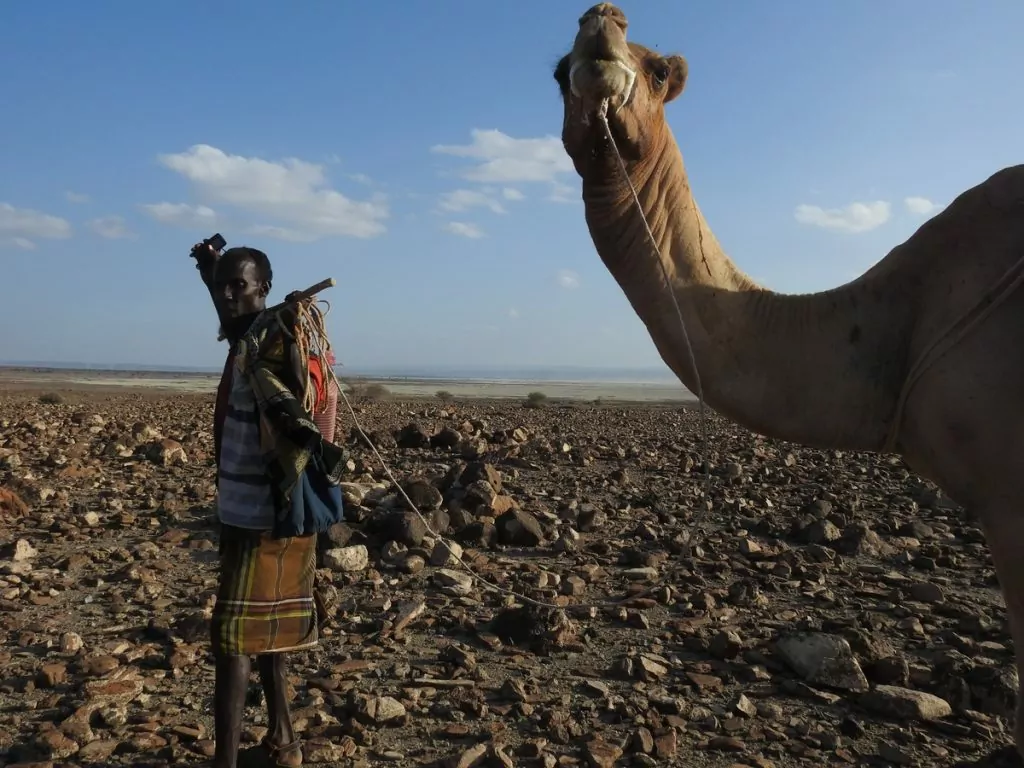
In Dhikil, a dusty hole, we stop and the driver buys khat, the drug that almost all men chew as a stimulant and hunger suppressant. You scratch the leaves, chew, form a ball and hold it in your cheek, like a hamster. The daily requirement costs 5 dollars.
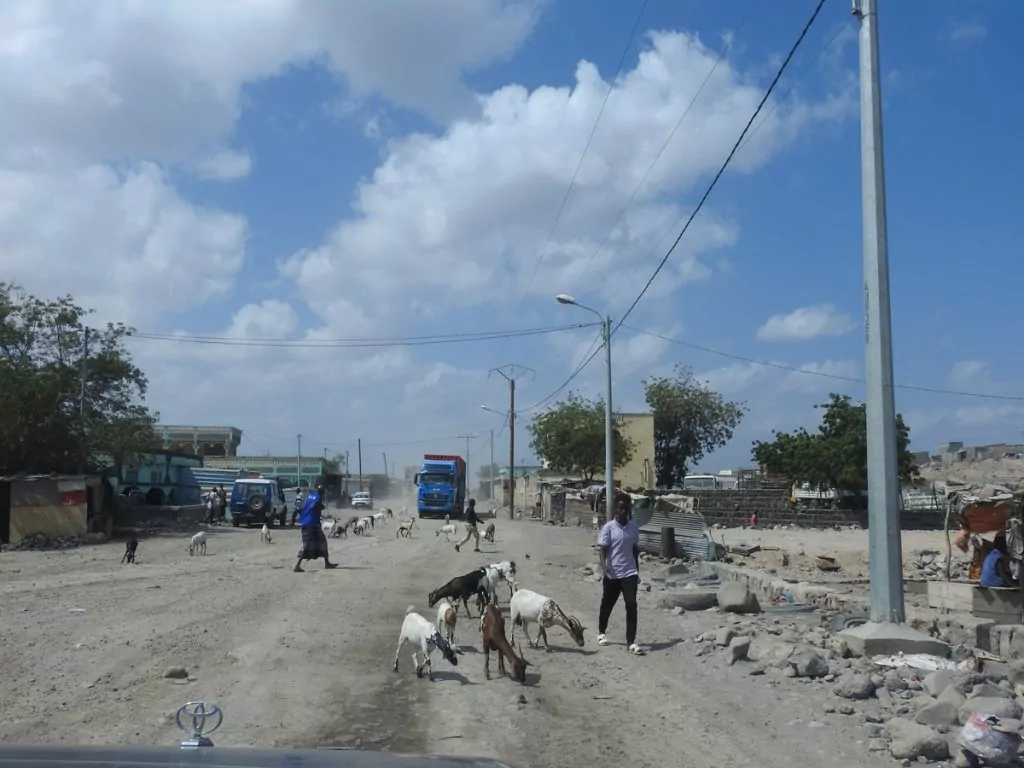
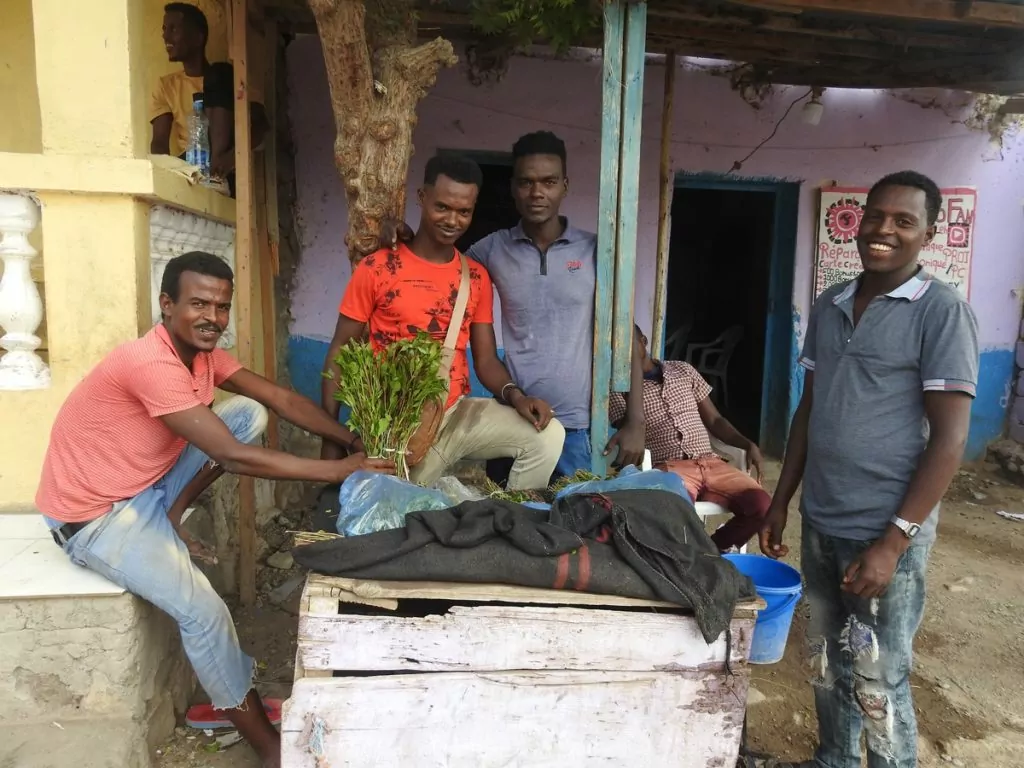
I buy myself a PYJAMAS, as they are called, these simple straight dresses. I choose the fabric, it is sewn up and costs 5 dollars. I am dressed for success.
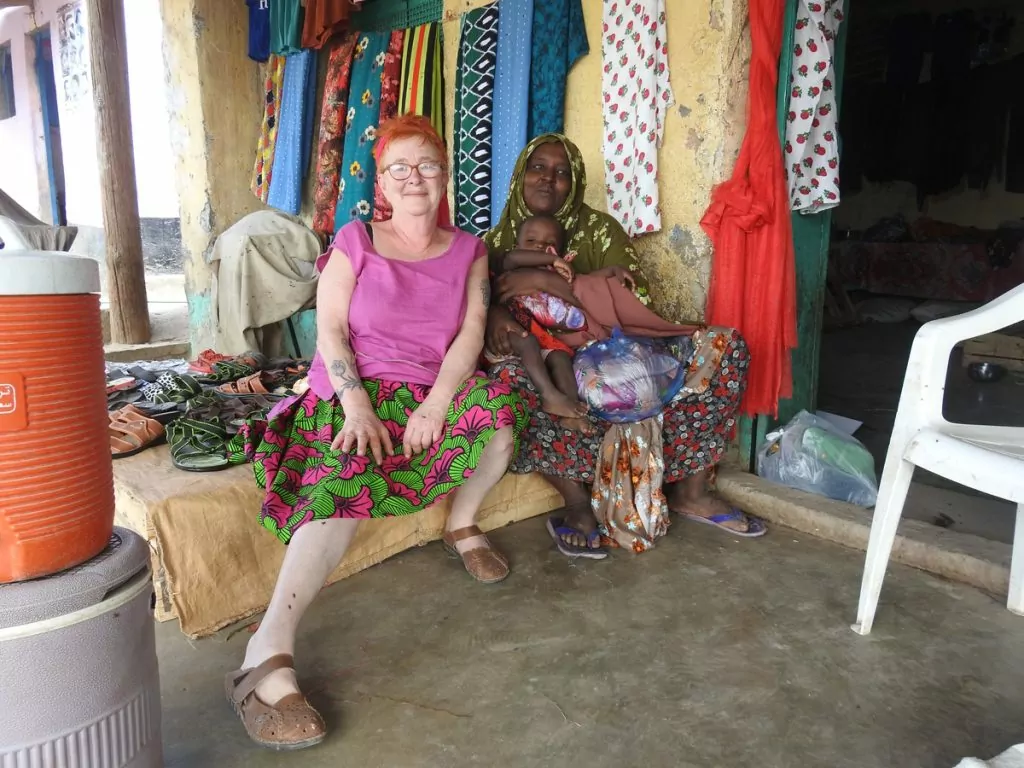
Due to the climate of the country, it is very difficult to grow anything, almost everything is imported.
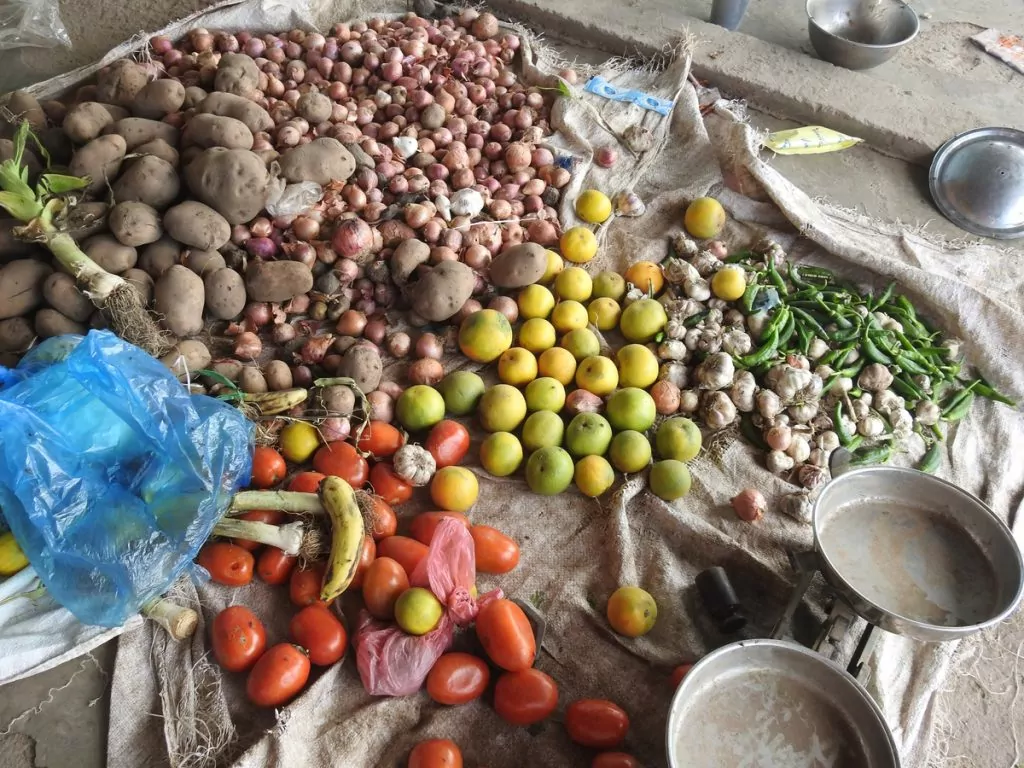
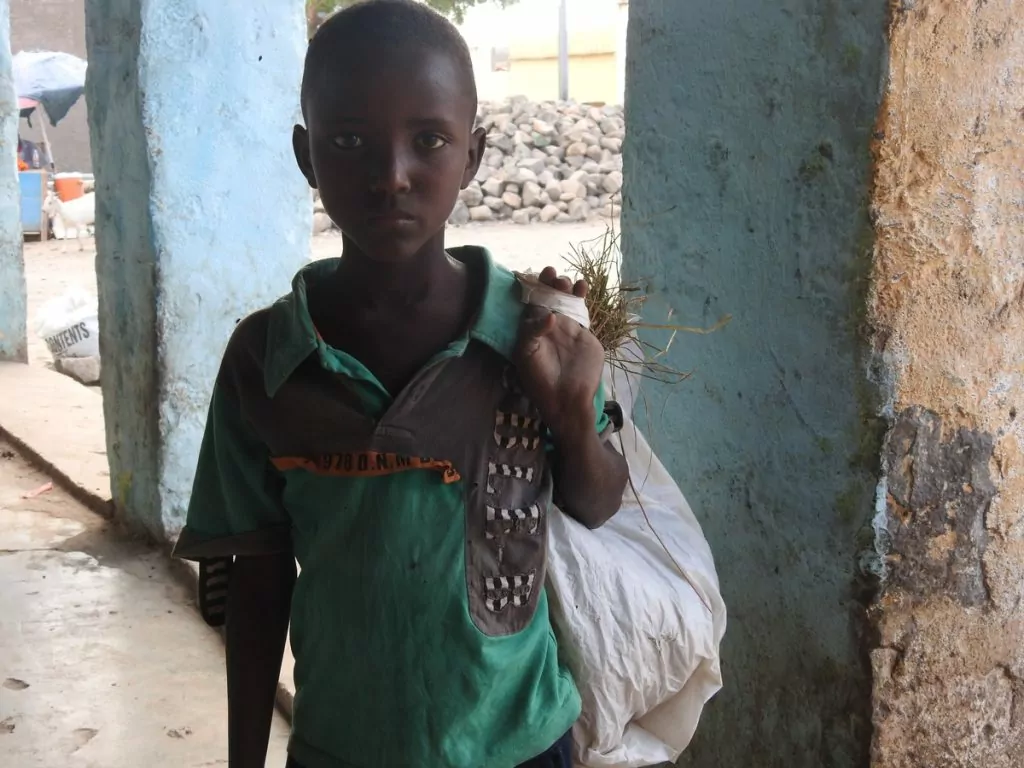
The fauna is also not very large, there used to be both elephants and giraffes but they have moved on to greener areas. A shy Grant's gazelle can be seen behind the acacias and some Beira antelopes rest in the sand.
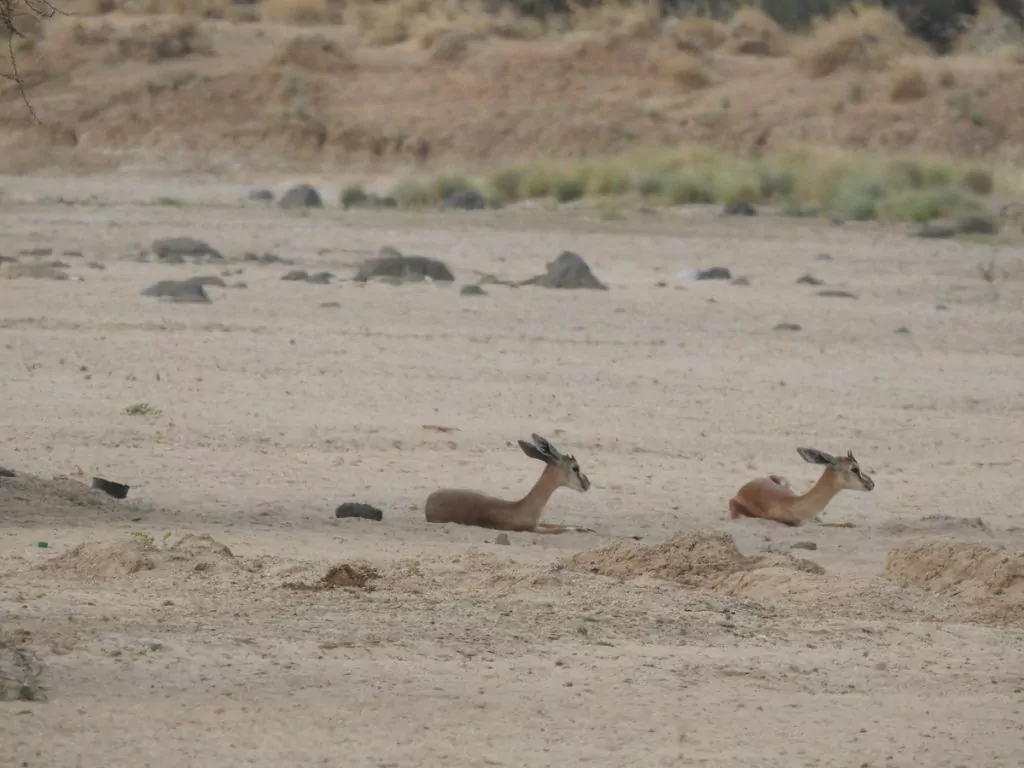
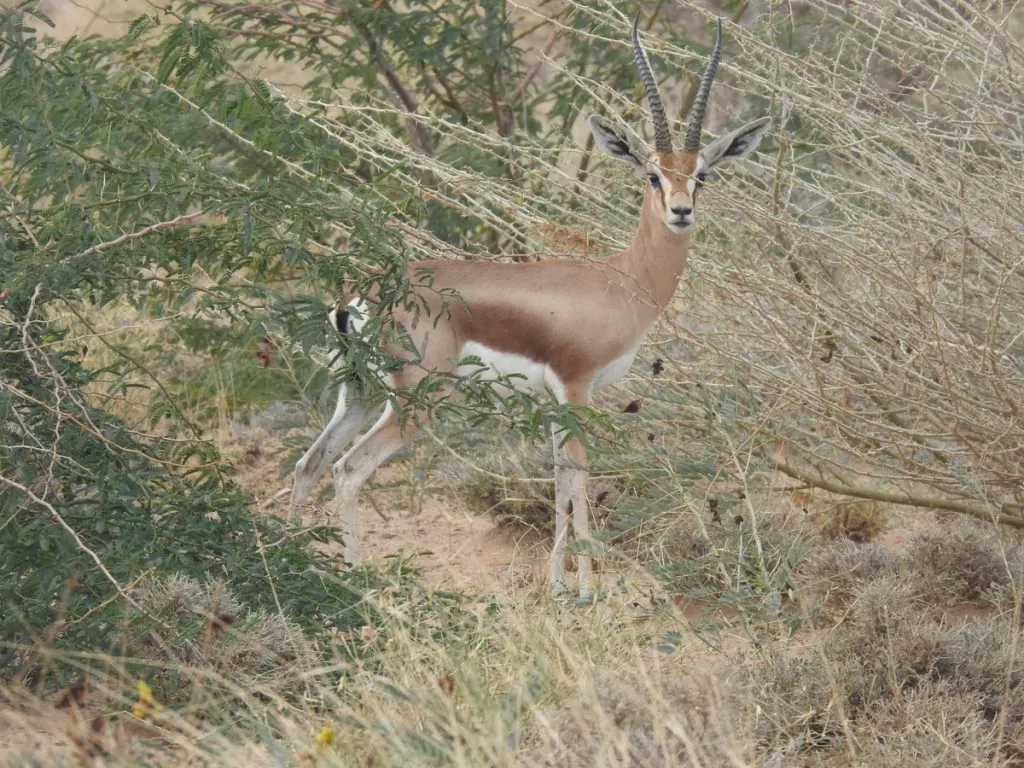
Blowing up mountains of ancient volcanic debris, I feel like I'm standing on top of the world. We are now close to the Ethiopian border.
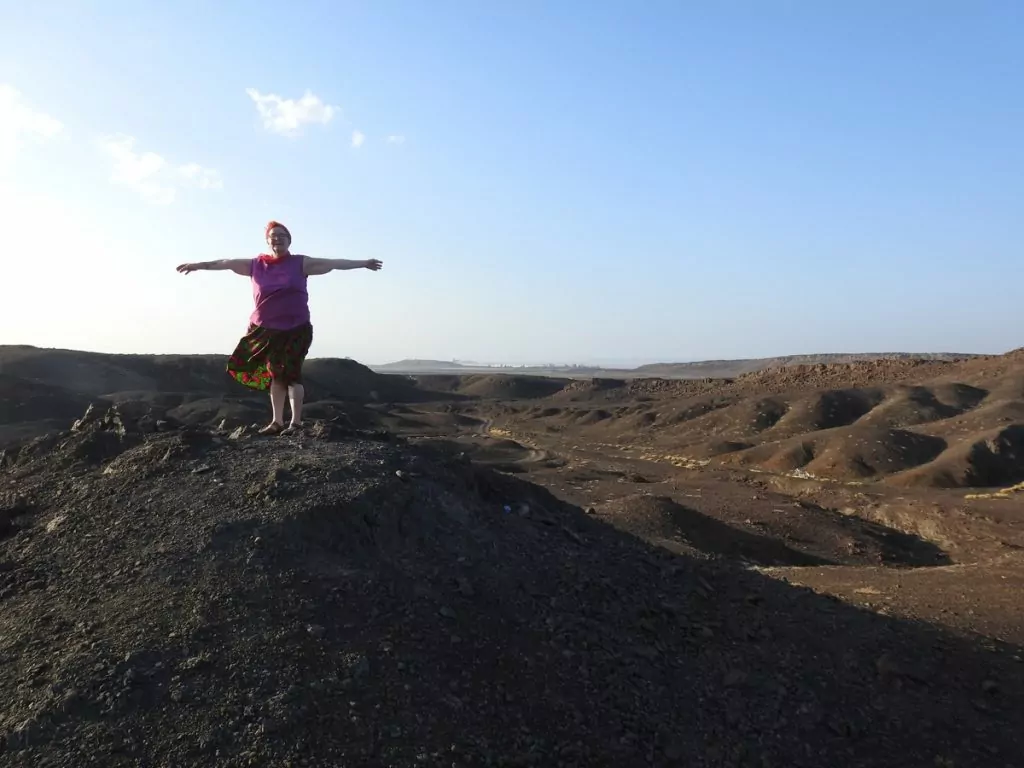
The sun begins its descent and we arrive at Lac Abbe at dusk. An unprecedented spectacle. The Afar people herd their donkeys home, a wild boar runs and a cloud of dust forms behind him.
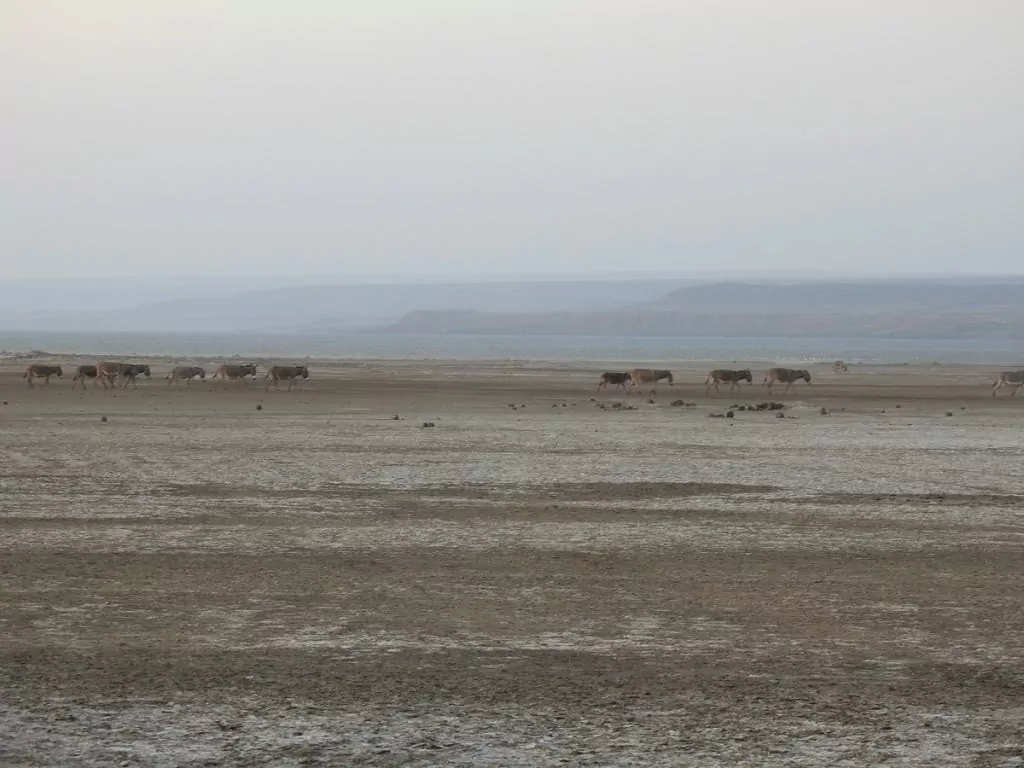
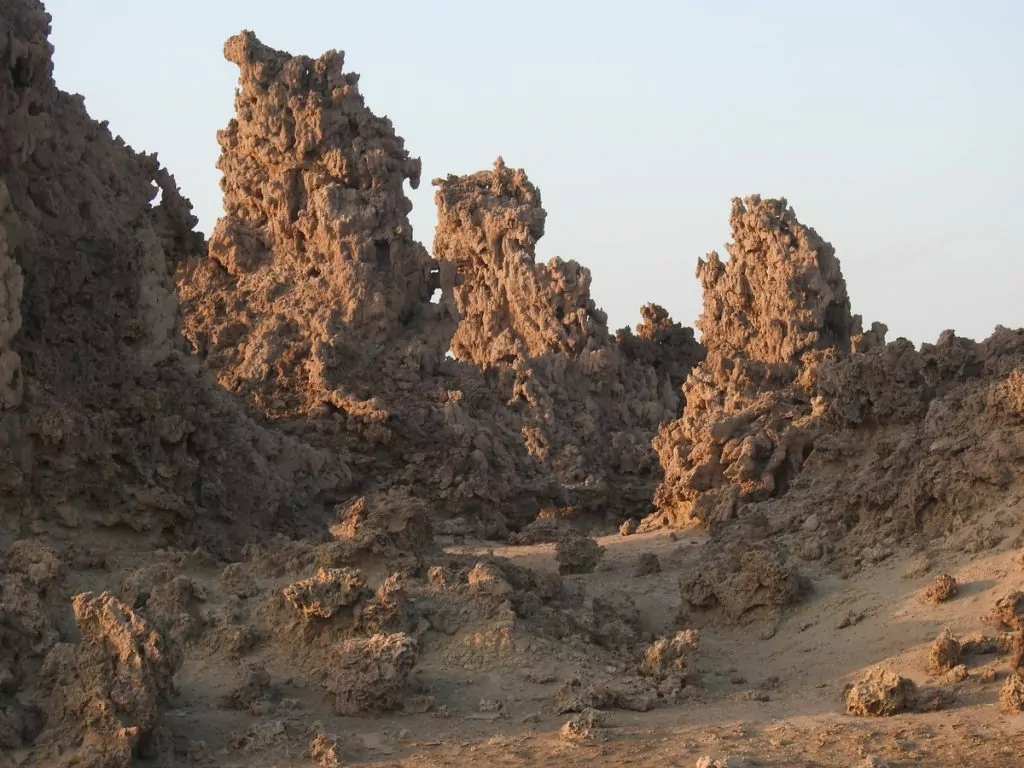
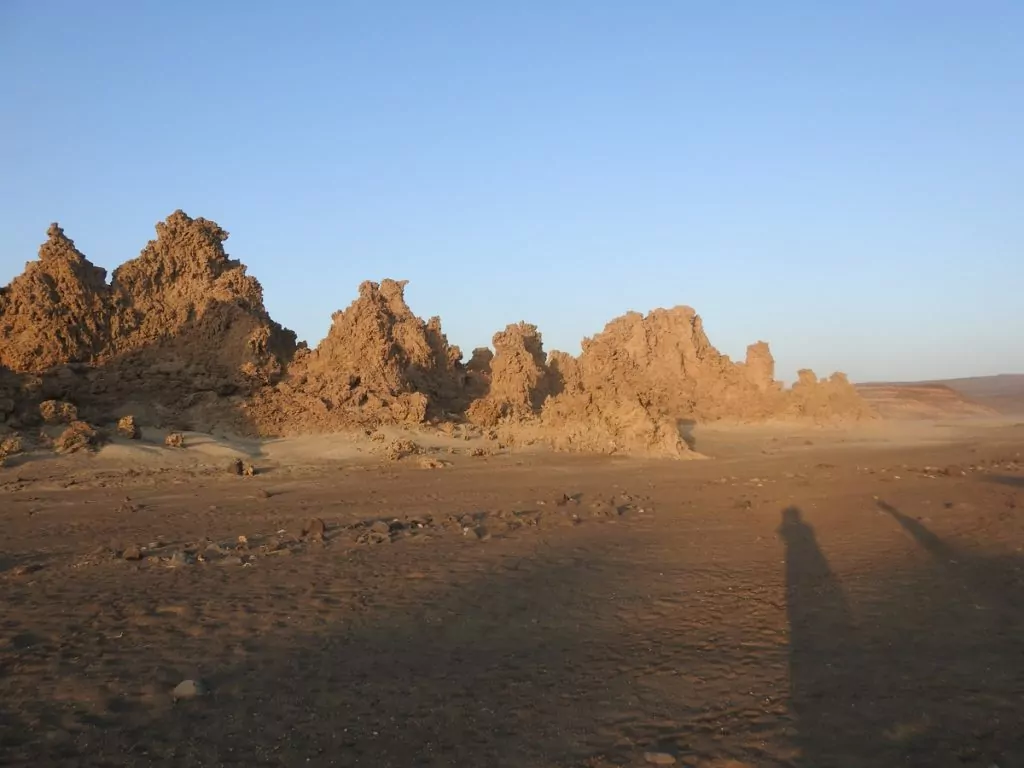
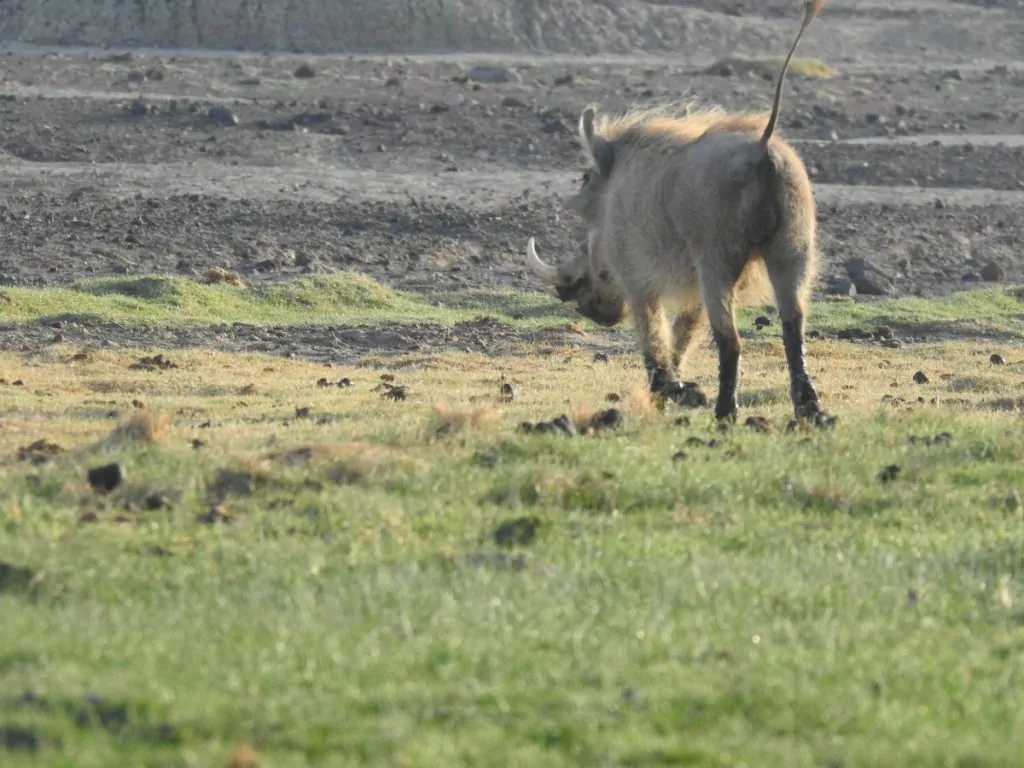
Overnight in a desert camp, the only one in this marvellous landscape. Sleeping in a tent or stone hut, it is pitch black and only the stars twinkle. Here you are as far away from civilisation as you can get and contact with the outside world is only by satellite phone.
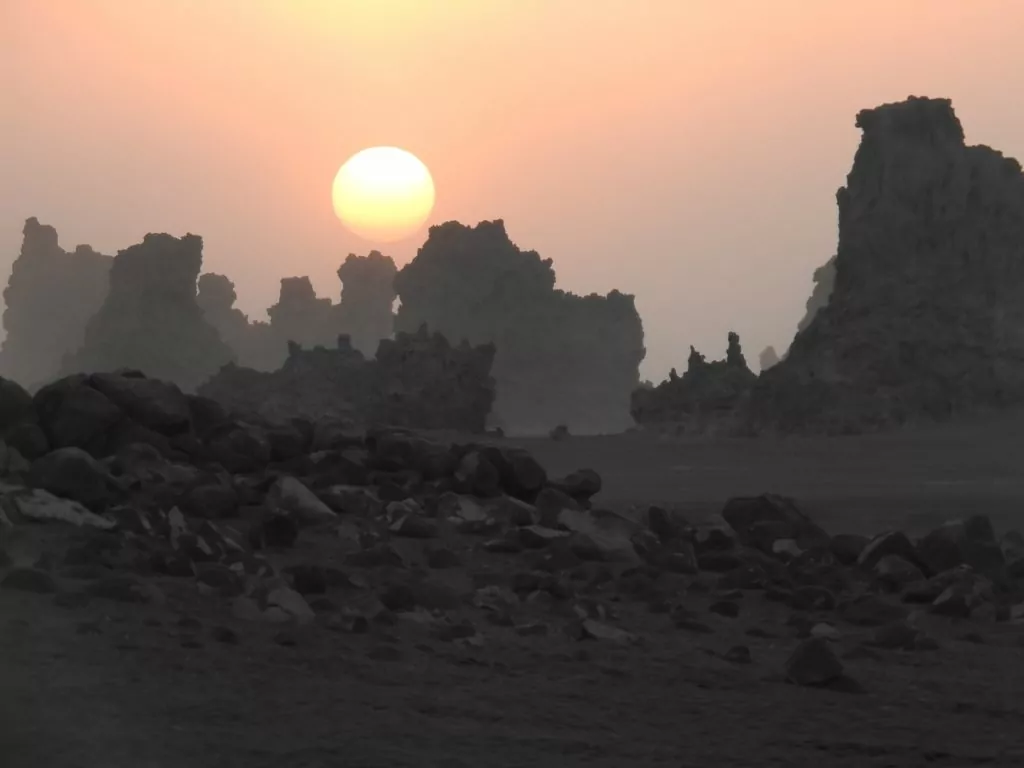
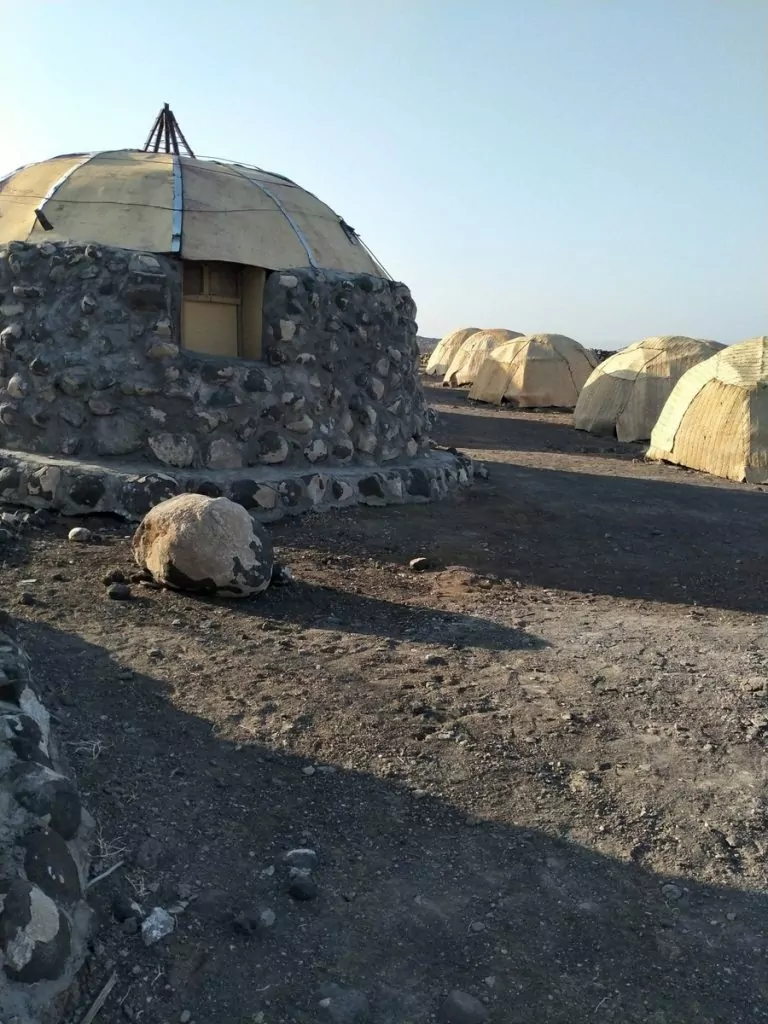
On day 4, we get up in the pigsty and have a simple breakfast. The first sun rays of the day peek out and the strange limestone cliffs rise high like frightening shadows, the highest is 45 metres. A pair of jackals play in the sand.
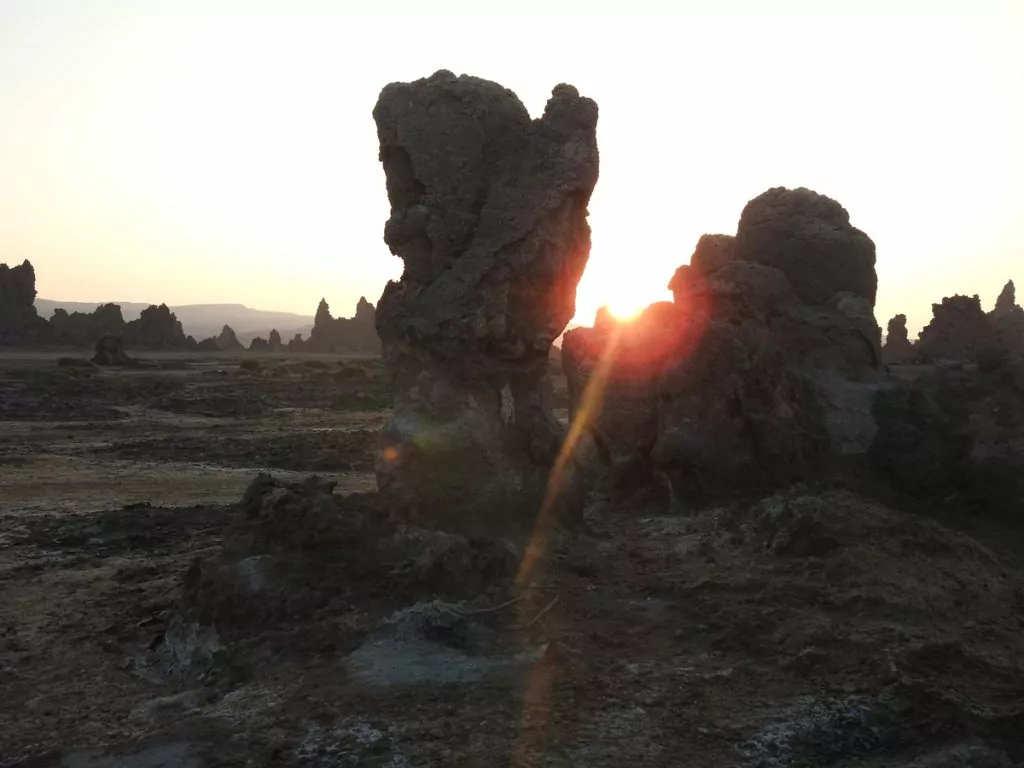
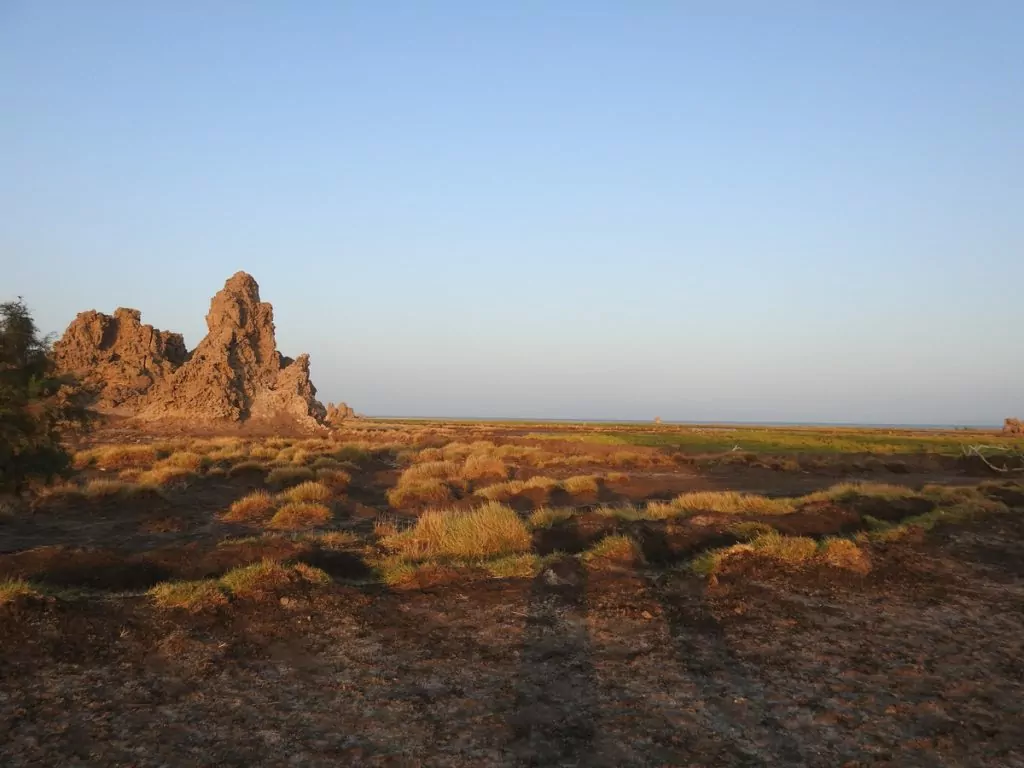
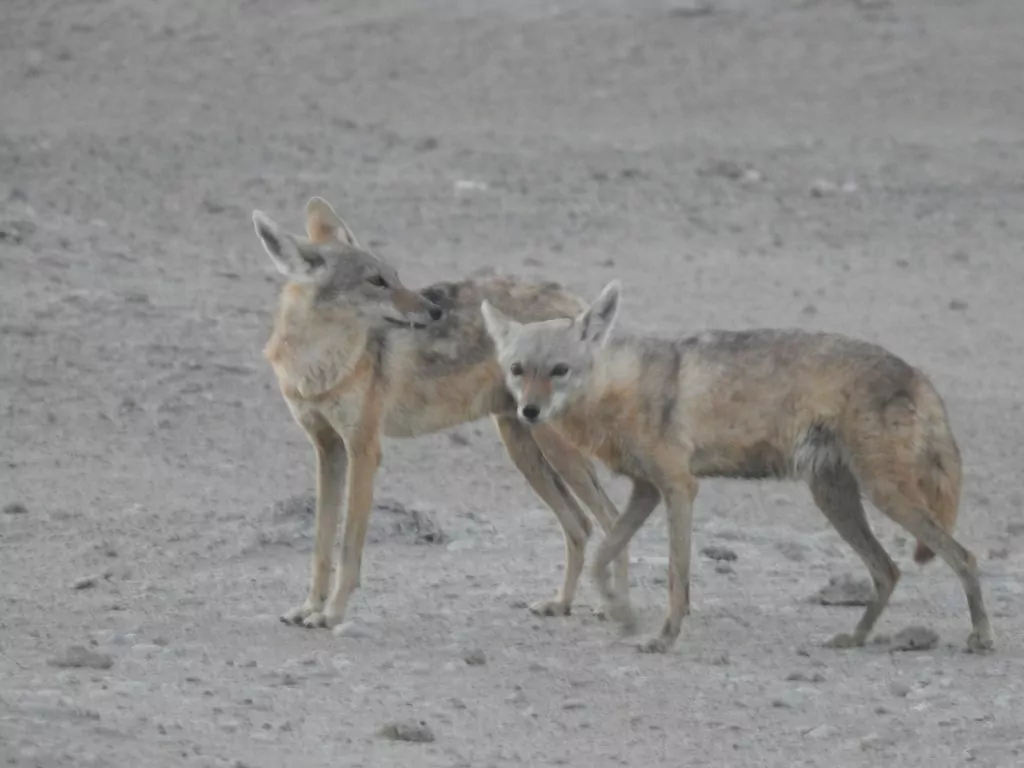
There are hundreds of chimneys and I soon realise why they are called that. From hot springs, sulphur vapour is carried up through the hollow rock faces and the smoke rises into the sky. The water in the springs is 80 degrees centigrade. Right here in the Afar Triangle/Afar Depression, displacement occurs between three tectonic plates, underground water sources push up the magma, the rocks are formed.
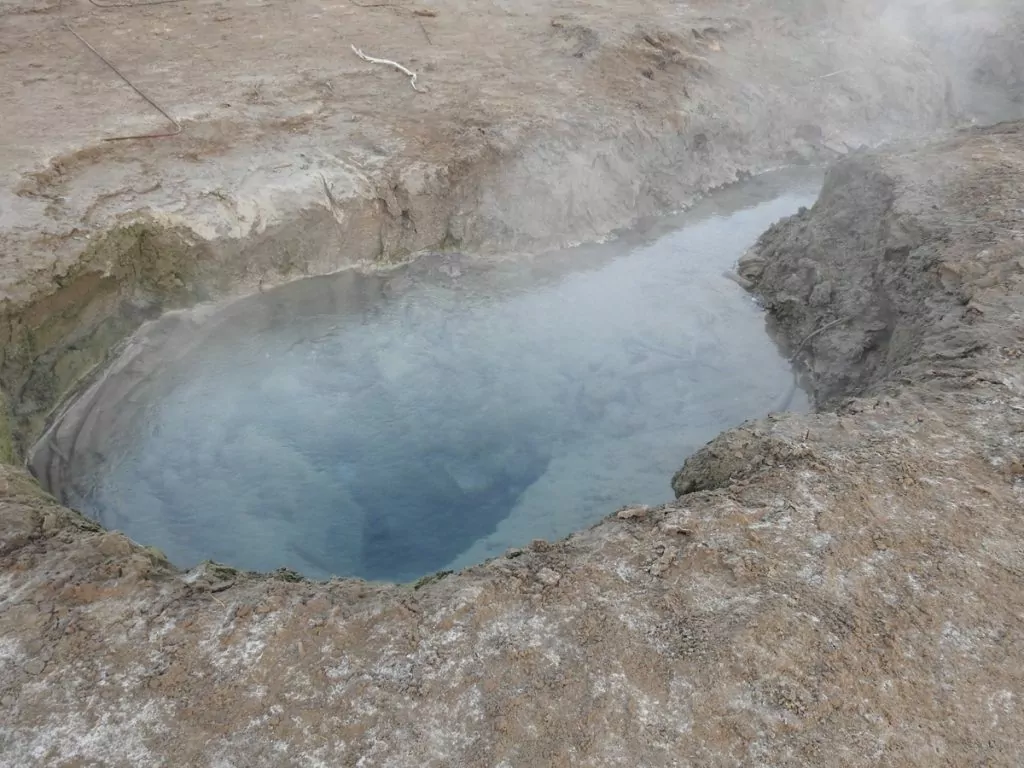
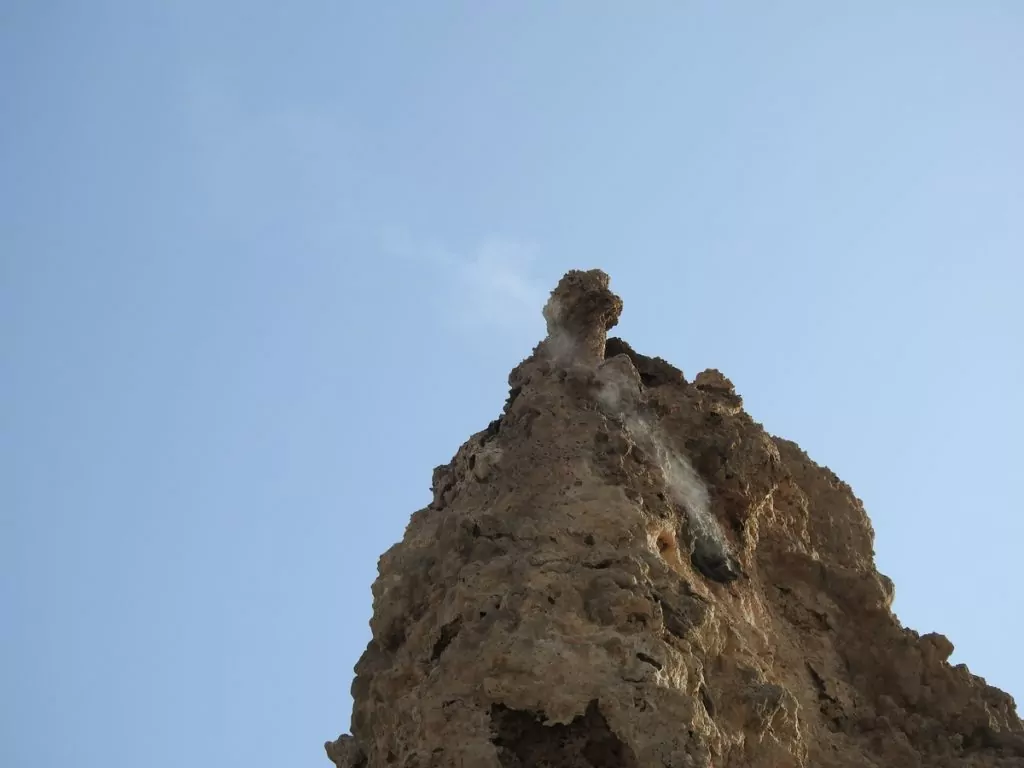
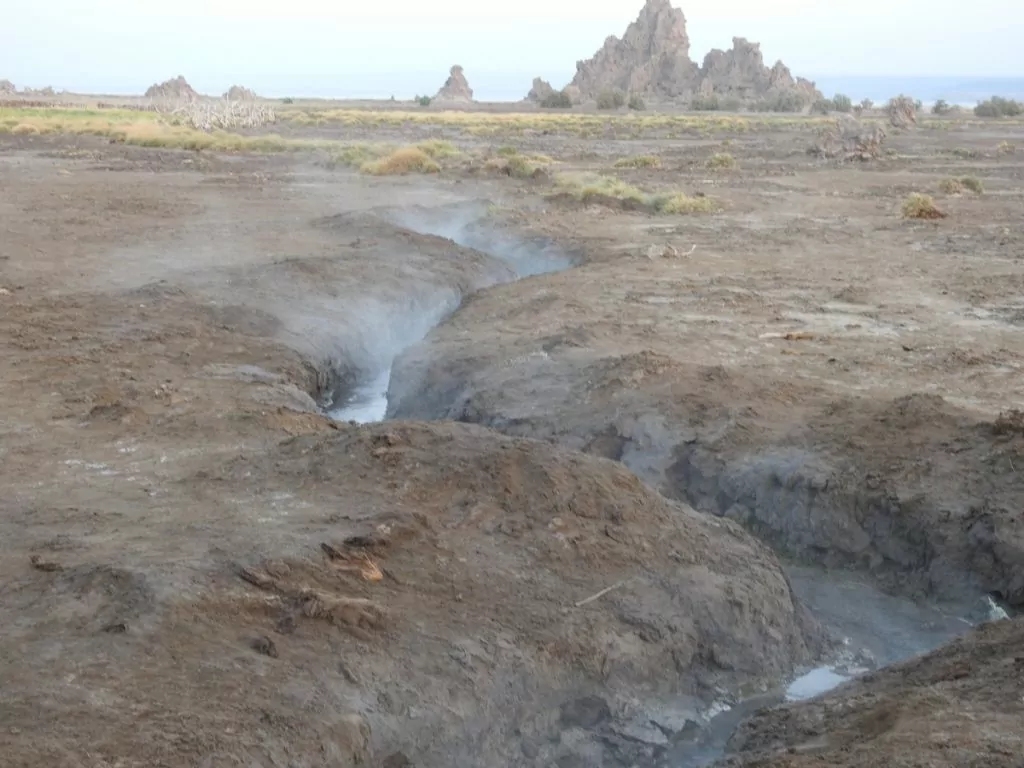
It's like being on the moon. Or as scientists believe, this is the cradle of humanity.
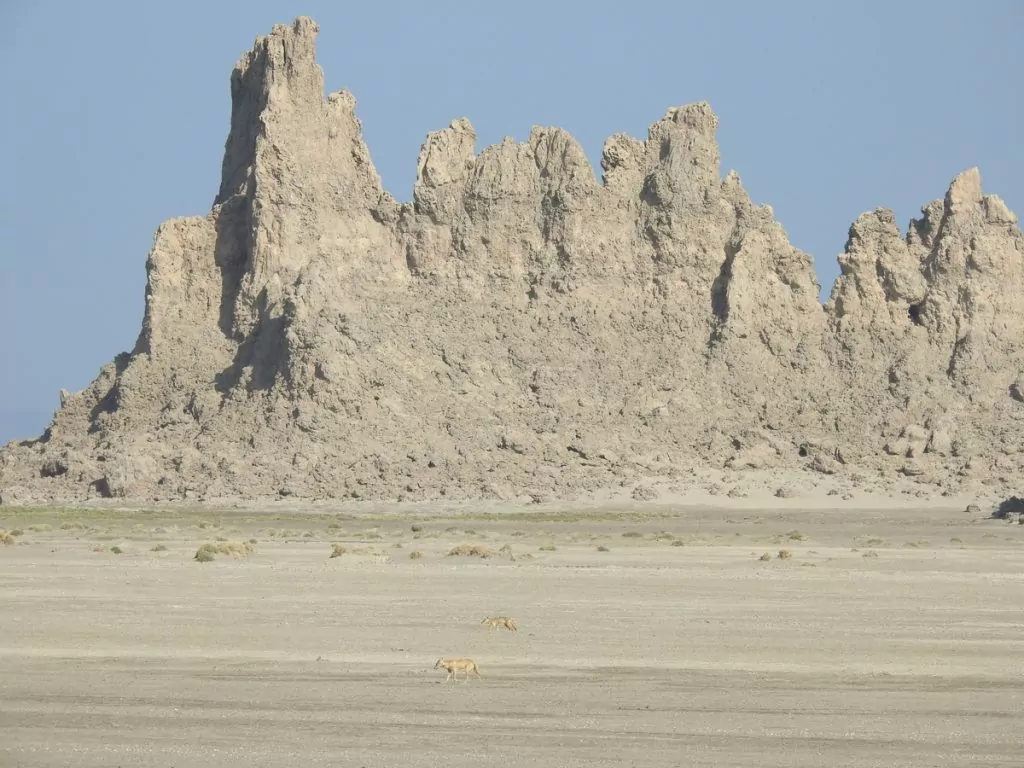
The salt lake itself is one of six interconnected lakes, with a large flock of flamingos dipping their toes in the water. The lake is 19 km long and 17 km wide.
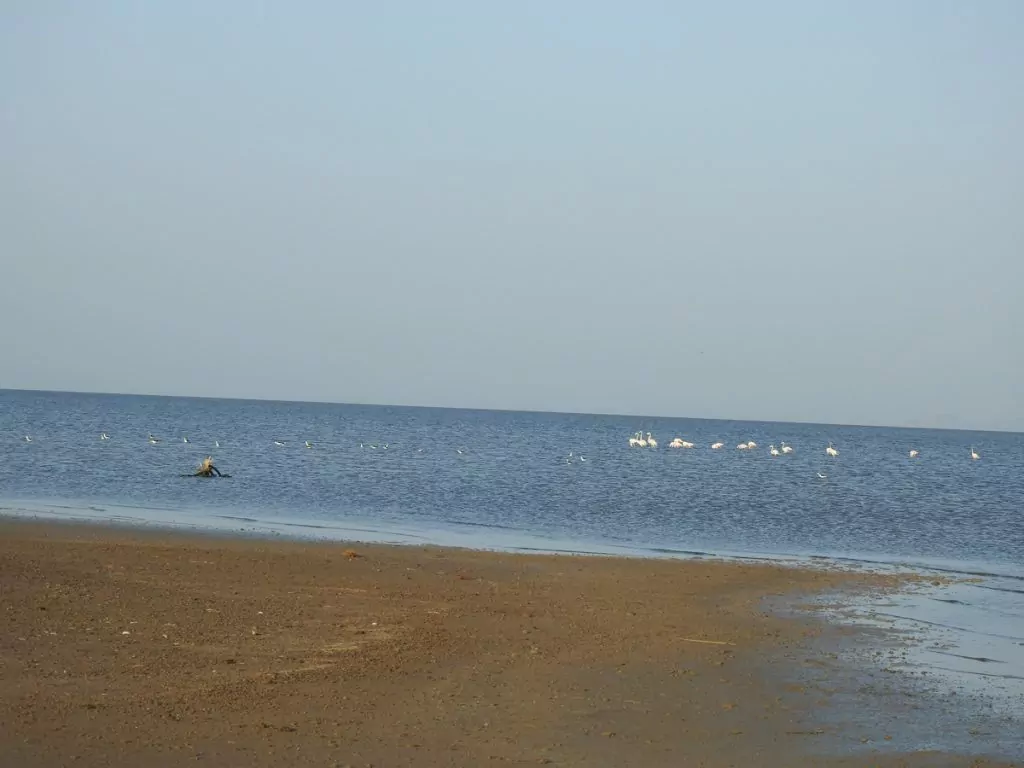
There's a rumour that turned out to be false; that Planet of the Apes 1968 was filmed here, but anyway, it's like being on another planet, without monkeys.
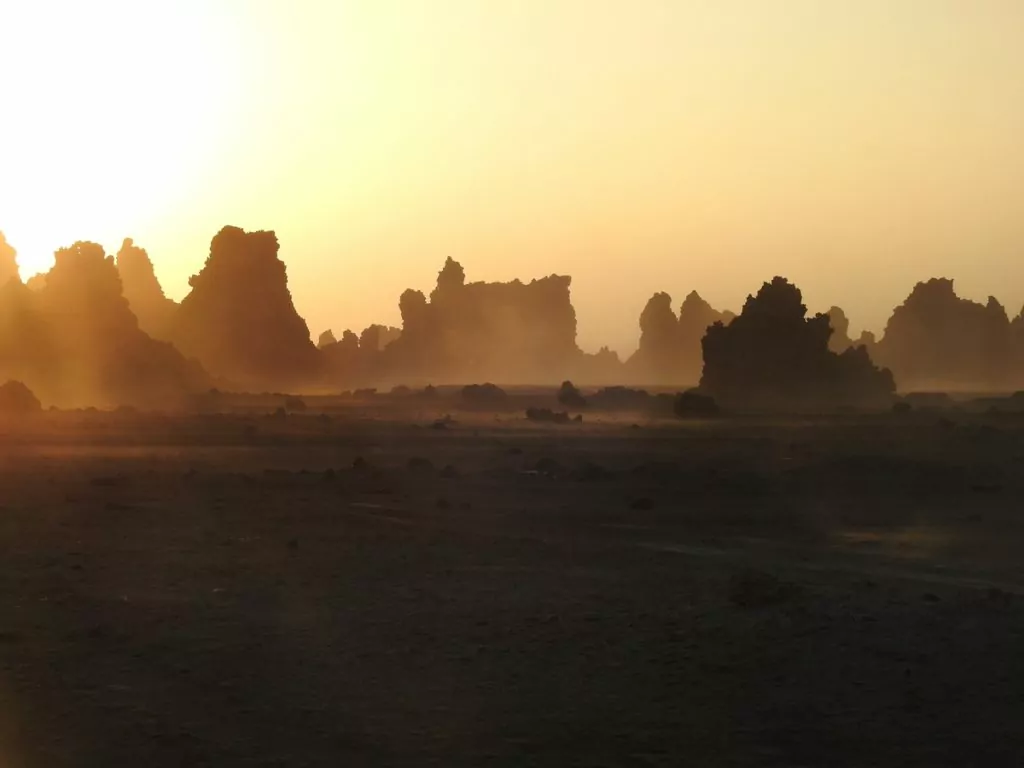


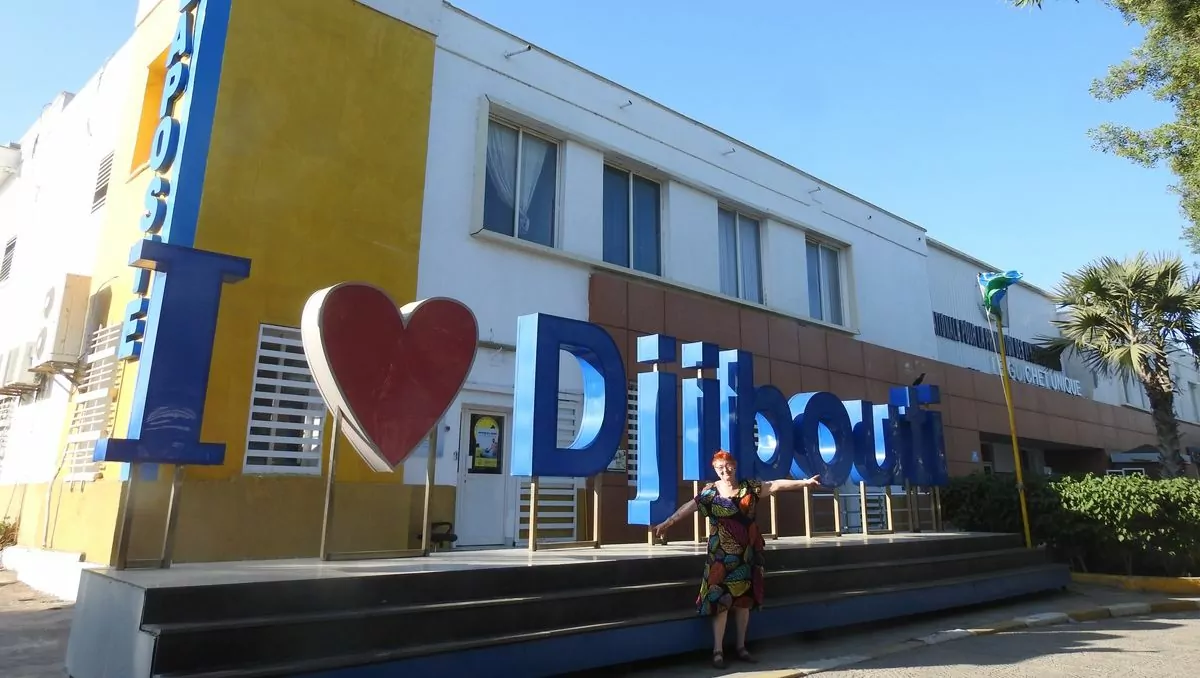






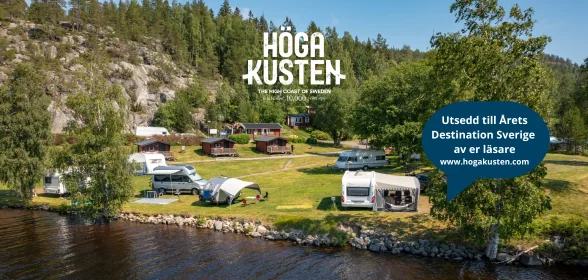



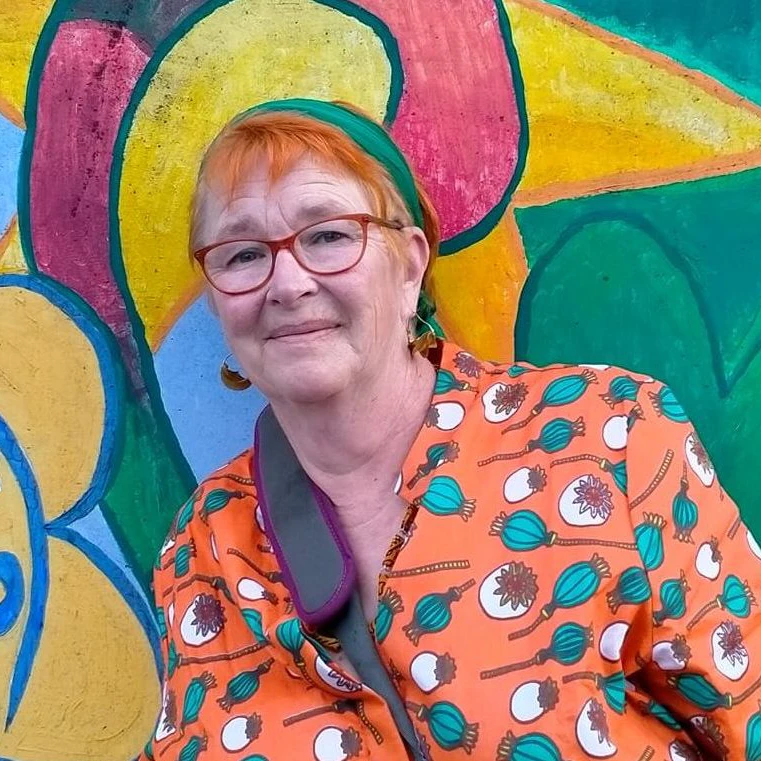
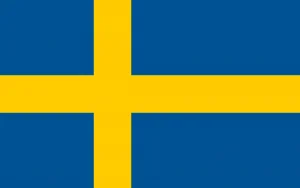
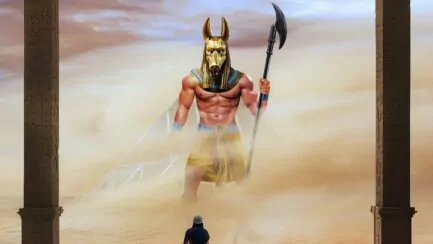
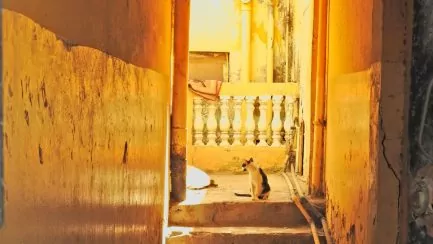
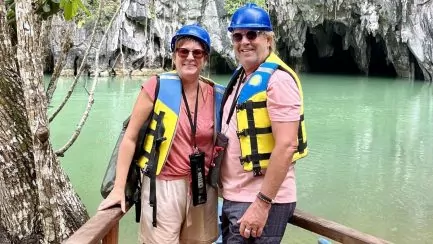
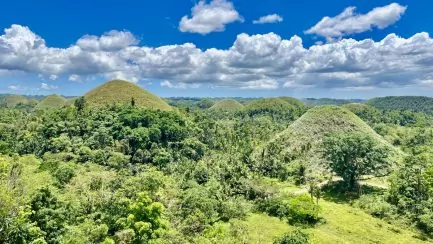
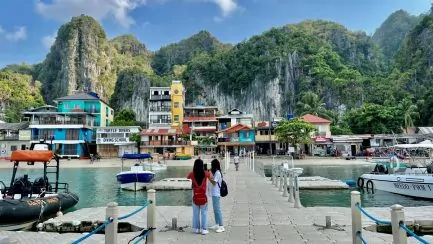
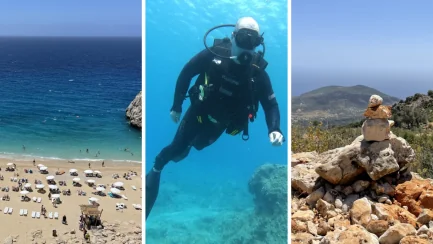



BP says:
You must really love Africa! Djibouti is not a country I would willingly travel to and certainly not alone, at least not to the city. However, the cliffs are absolutely stunning. The picture with the moon is one of the most beautiful photos I have seen. So I guess this experience made up for the "rubbish dumps" in the cities....
26 March 2023 - 17:08
Anna Nilsson Spets says:
Hello! I really love Africa. Djibouti is not a tourist country, extremely poor but extremely safe to travel in. Yes the chimneys/rocks were really strange.
27 March 2023 - 6:13
Jonathan says:
Nice with a story from Djibouti. The only thing I knew before was that they had nice banknotes and a funny name. I collect coins and banknotes from Africa and I have to say that their banknote with a whale shark on it is one of the nicest ! those in the Balkans make fun of a country having a name that is one of their most common swear words 😉 .
27 March 2023 - 7:54
Anna Nilsson Spets says:
Hi, yes the currency is very nice, including a silver coin with a camel on it. Regarding the Balkans and swear words, I speak Bosnian fairly well and the swear word you are thinking of, which is not appropriate here, is somewhat similar to the name Djibouti, but spelled and pronounced differently. What coins are you looking for? Maybe I have something funny.
27 March 2023 - 19:20
Jonathan GDM says:
Ah, I collect coins from all countries in Africa, mainly sub-Saharan, so all coins are received with gratitude :). Feel free to save when travelling, can be exchanged for beer later ...
03 April 2023 - 15:50
Lena - good for the soul says:
It was an adventure to an odd destination indeed! Fascinating that such places exist and even more fascinating that people want to live there!
Thank you for an entertaining read!
Hugs Lean
28 March 2023 - 13:33
Anna Nilsson Spets says:
Thanks for reading. Yes, Lake Abbe is considered one of the most inaccessible places in the world, I don't know how the nomads can survive there given the distance to civilisation.
29 March 2023 - 6:30